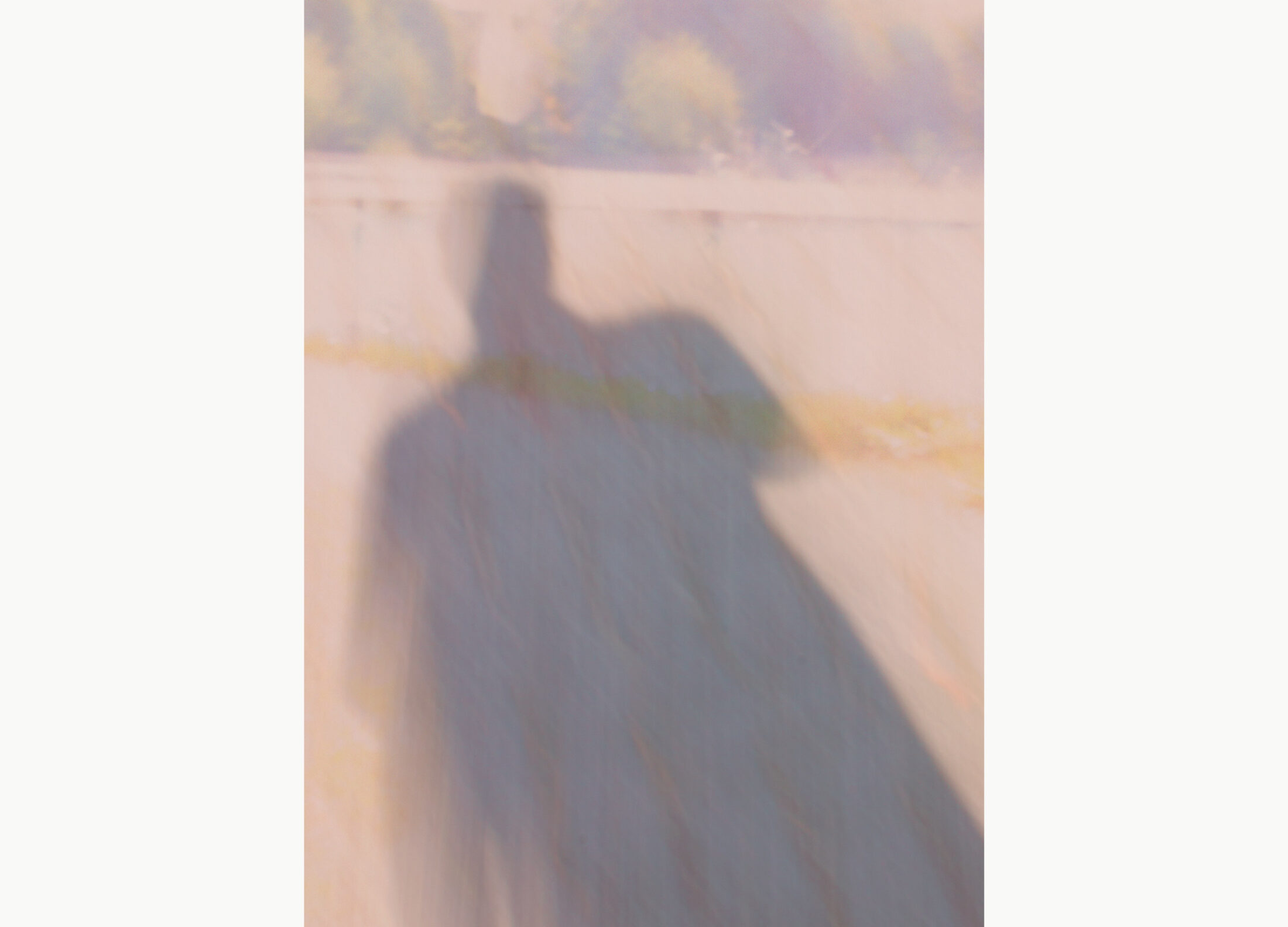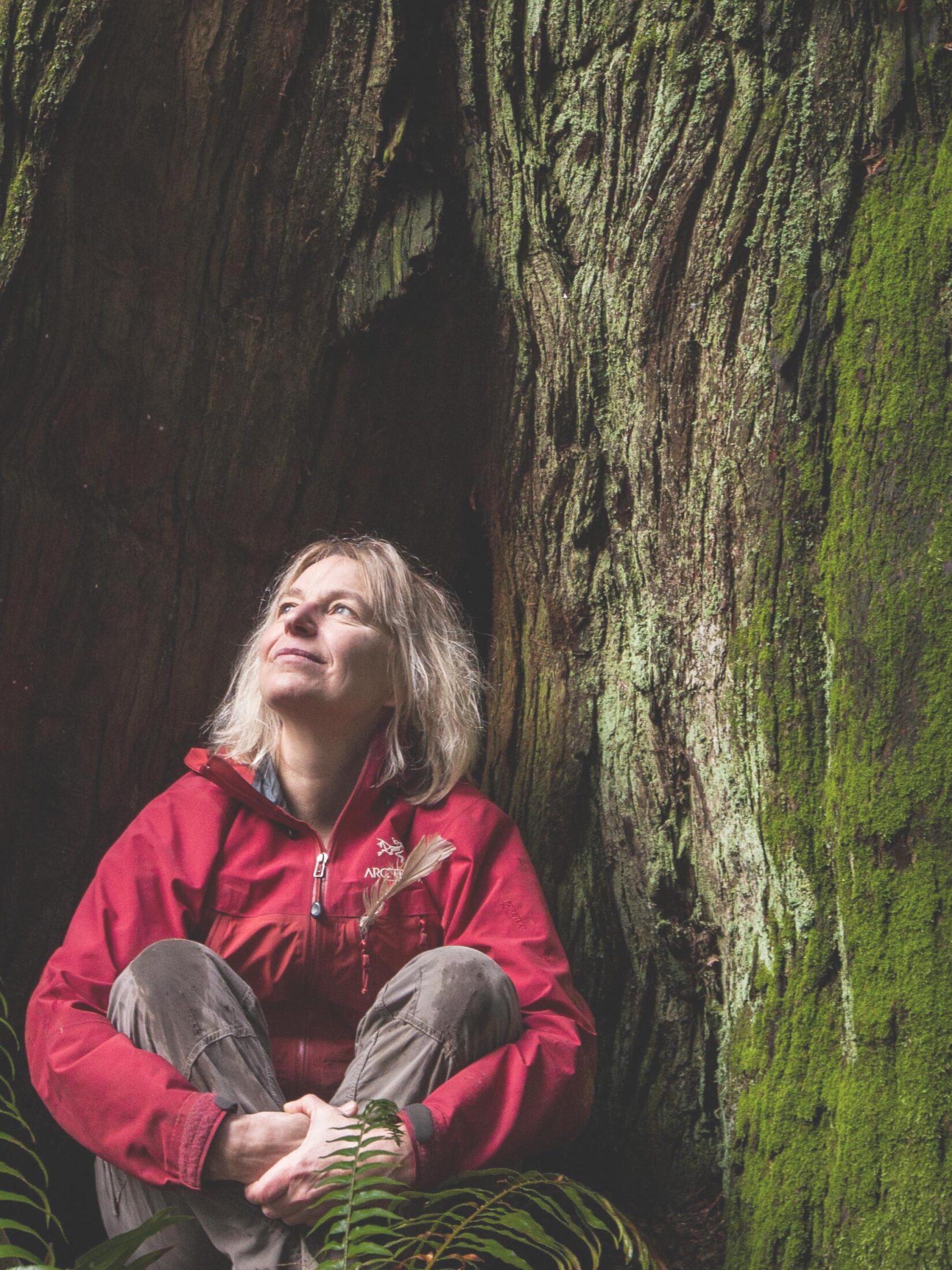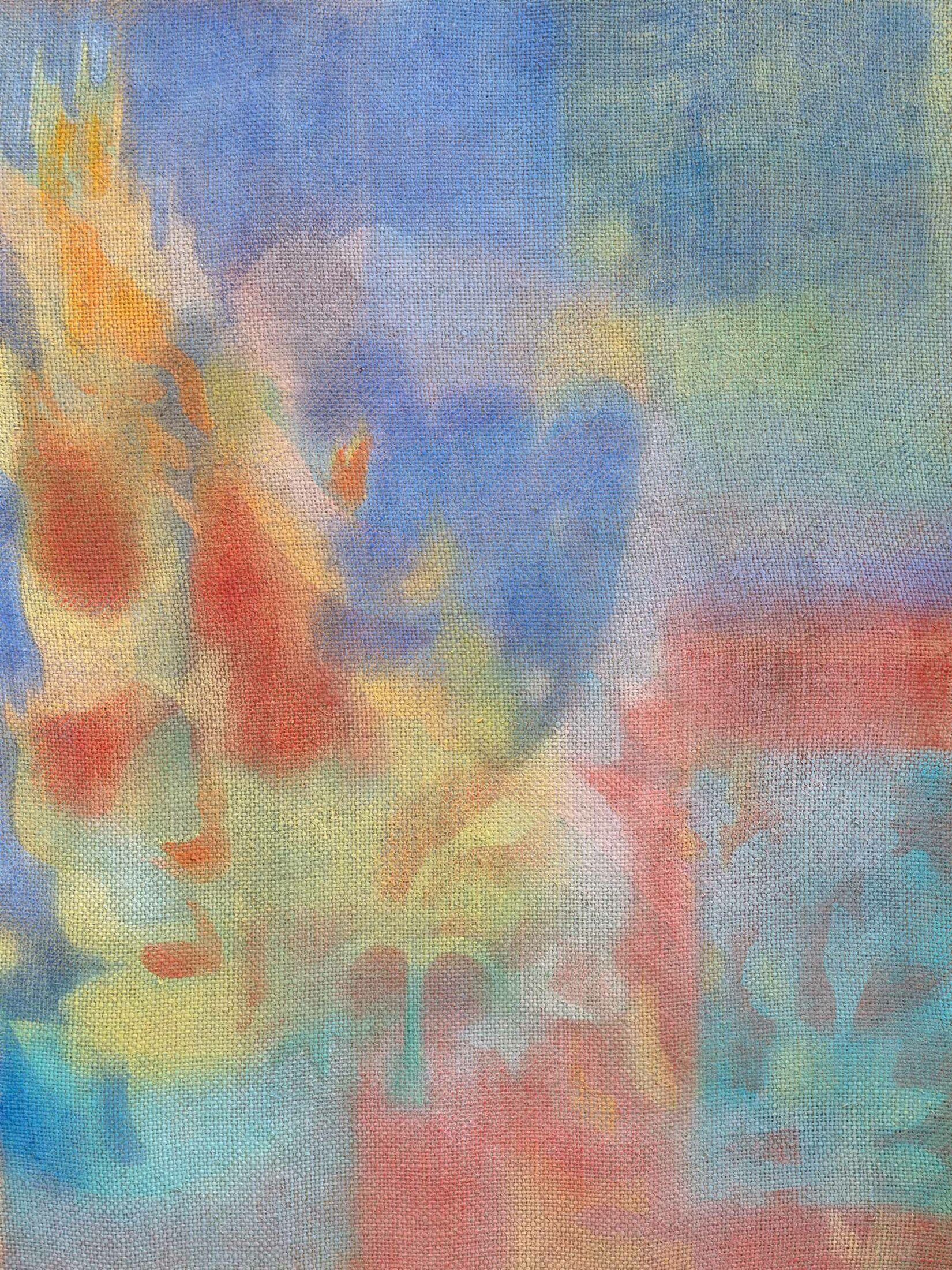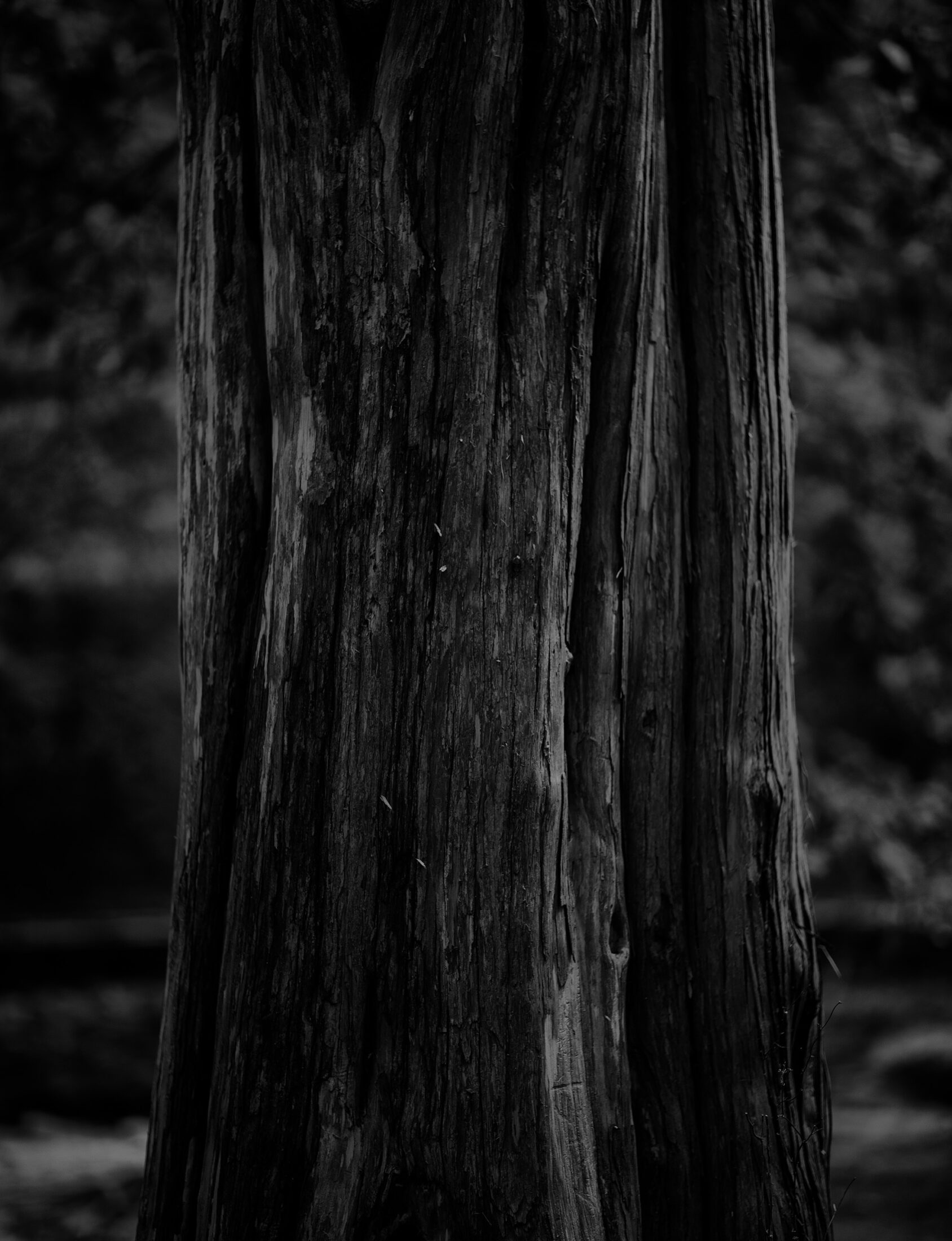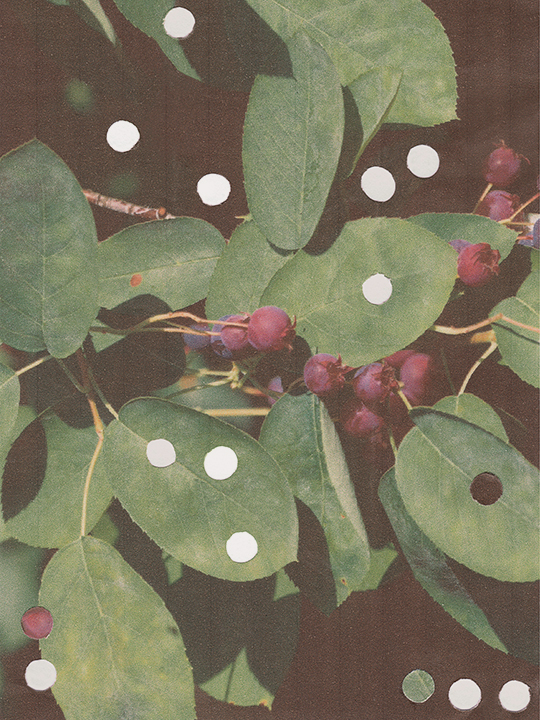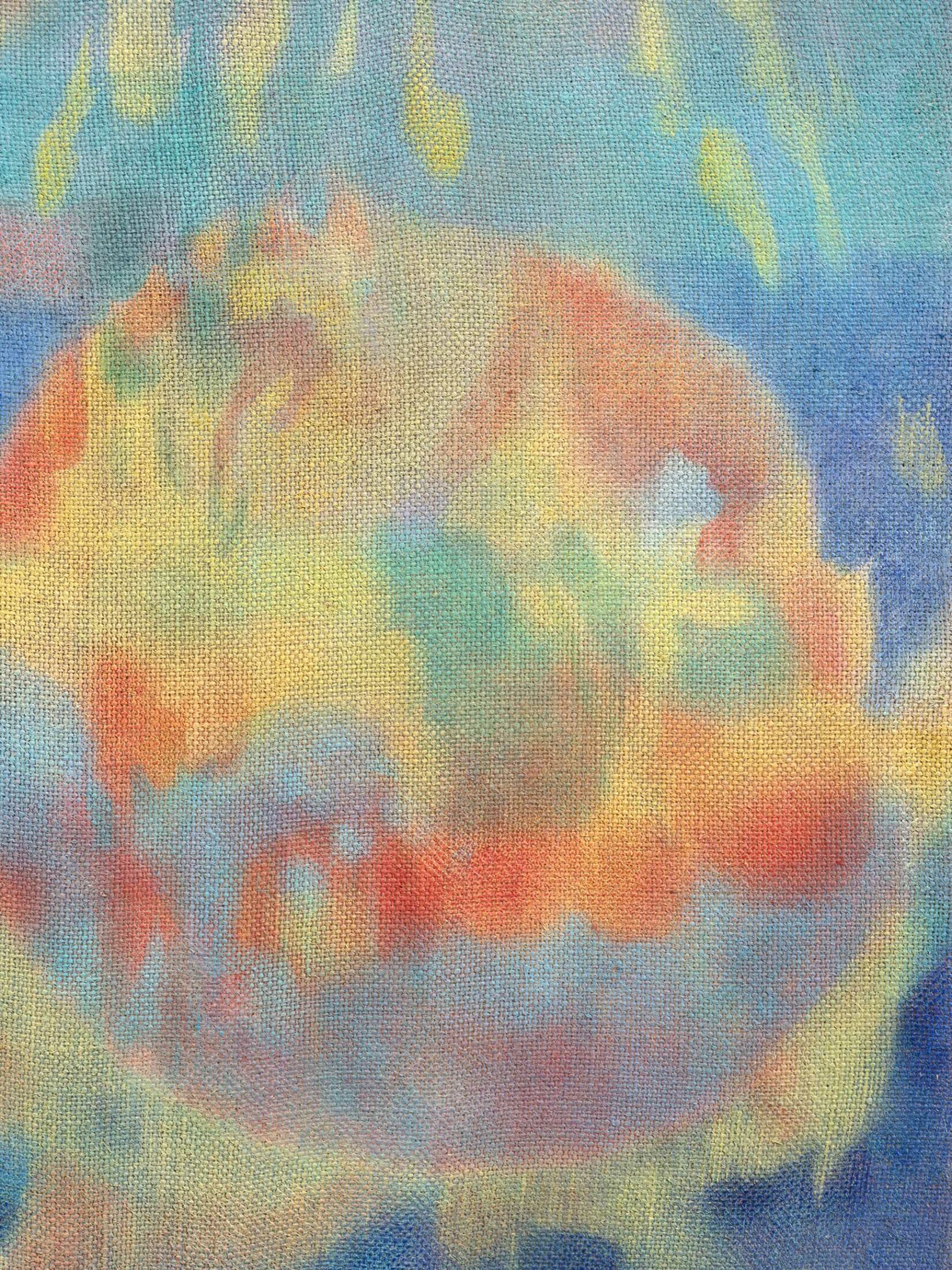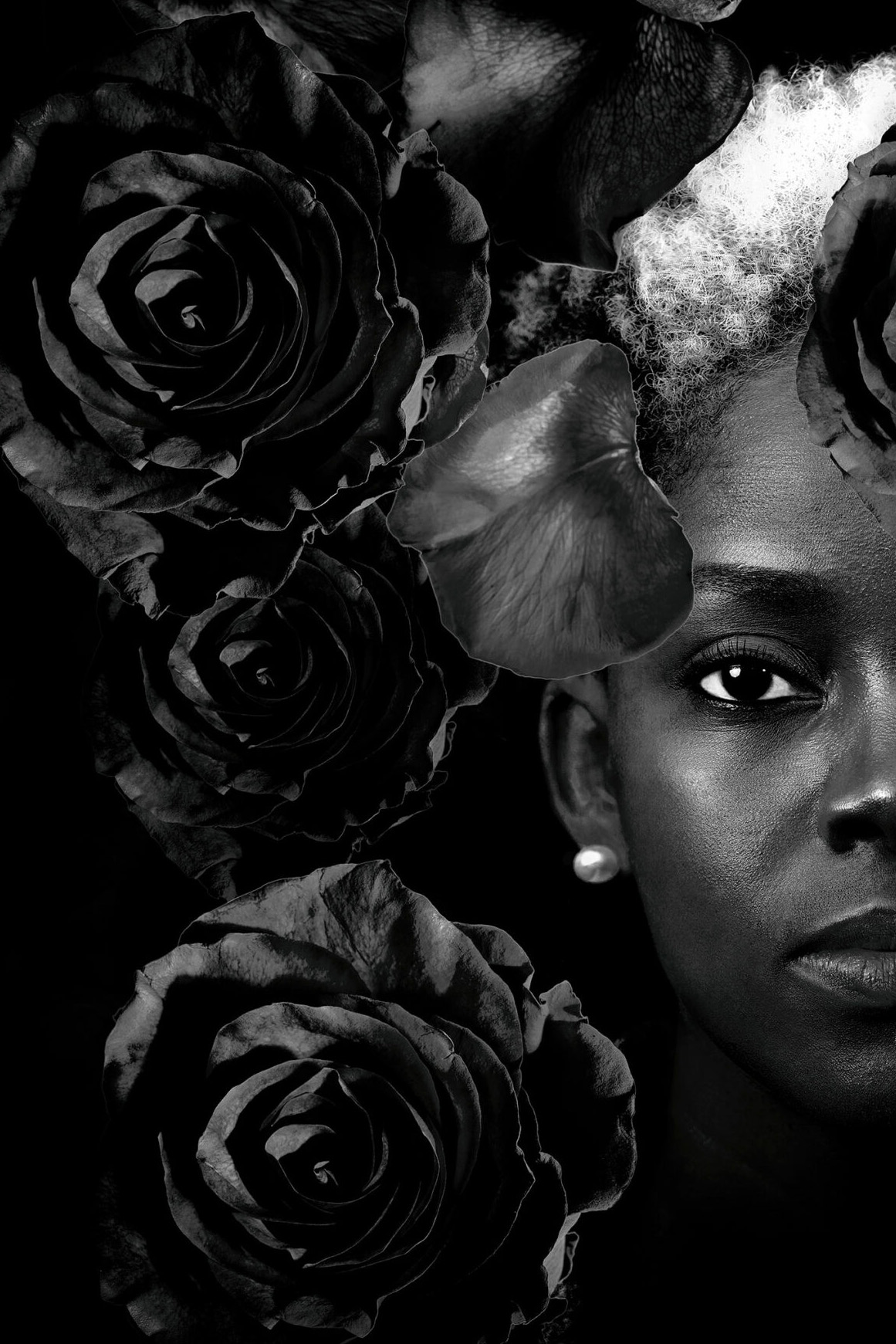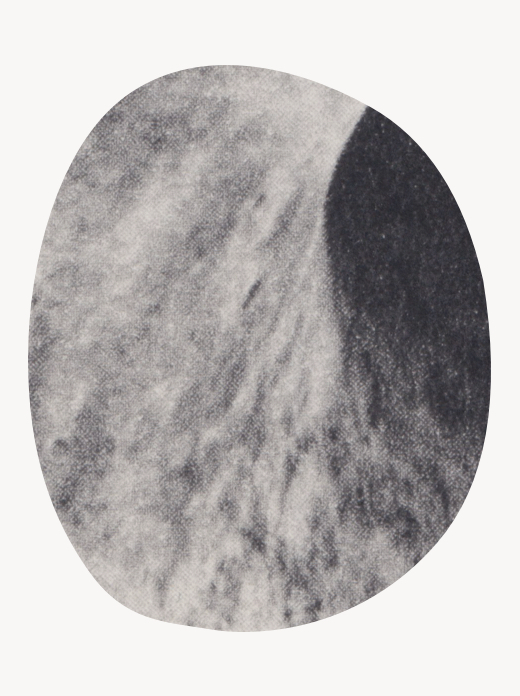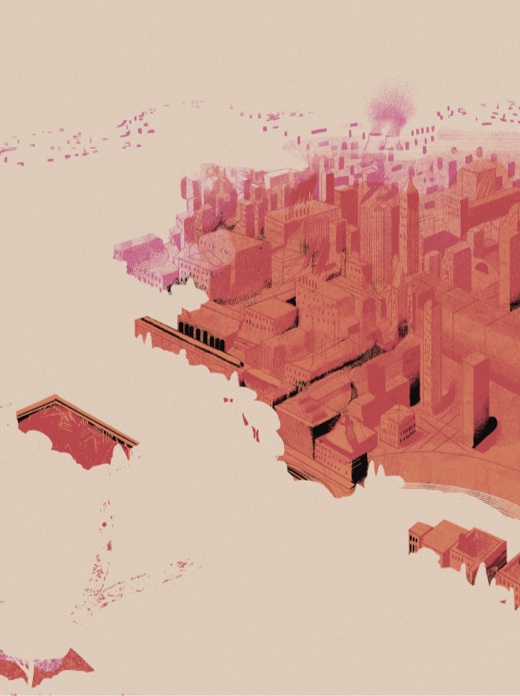
Ben Okri is a Nigerian poet, novelist, and playwright. His many books and poetry collections include: Prayer for the Living, The Freedom Artist, and Rise Like Lions: Poetry for the Many. His novel The Famished Road was the recipient of the Booker Prize for Fiction.
Studio Airport, founded by Bram Broerse and Maurits Wouters, is an interdisciplinary design studio that ventures out into the cultural ether to forage for anomalies, creating work that spans art, culture, science, and ecology. In addition to Emergence Magazine, their creative partners include the Design Museum, See All This Art Magazine, Slowness, Normal Phenomena of Life, and Sapiens Magazine. They serve as master tutors at the Design Academy Eindhoven and were recognized as European Agency of the Year 2024 by the EDA.
1
It was a long night after the end. Many of us lived in the night and did not emerge. We knew nothing of what had happened except that one day everything went down. Everything shut down. The electricity was out and the internet no longer worked and none of the communication lines that ran the world existed anymore. We learned to live in the dark, in houses under the ground and in caves on the edges of the city. No one came out into the air.
We were a community that lived beneath the ground. We had forgotten what sunlight was, and the air we breathed came through the tunnels in the earth, filtered by the earth itself. For many years we lived like this, pale and quiet, like human moles, unaware of what had been happening in the world above.
Over that time, many of our families died. People can’t endure being away from sunlight for long. Many perished of sun deprivation. Many simply wilted and surrendered themselves to the earth. Some of us tried to die but couldn’t. I tried several times. I couldn’t seem to find a way to die. After a while I came to accept the curse of life. Every day was an entombment. Every day the dream of light faded from our spirits. I would sleep at night but was unable to distinguish the night from the day. My dreams would be of nothing but sunlight. Sometimes I dreamt of fields of green. The green in my dreams was unnaturally alive. It made me weep to think of such a green. Sometimes I dreamt of rivers and streams, of running water. There was nothing as magical as the sun on my face in those dreams, or the feeling of water splashed on my body.
It was down there that we began to reconstruct the world for ourselves. Having lost it, we tried to reconstruct it anew, from our nostalgia and our memories and our incomplete knowledge of the world. It was down there that I realized how little we knew of the world we had lived in before the night came down upon us. I regretted not having asked questions about the world, about how things worked, about the different peoples and their histories. We all realized down there that we had taken too much for granted about the world we had loved. Did we really love it, then, if we didn’t know it? Can you love something you are quite ignorant about?
When we tried to re-create the world, we found that we could only re-create what we had known. We realized quickly that we were reconstructing our narrowness and our limitations. It was less than what we knew before. Therefore, we could not really begin again. And so we had to begin from nothing.
This was the hardest part. The more vocal among us wanted to rebuild what they had known. One said, “The custom from my land is better. We once ruled the world. It stands to reason that our traditions must be the best.”
“Your people ruled the world once? Well, my people ruled it last. We were more powerful than your people. It stands to reason that our ways are better than yours,” said another.
Those of us who came from countries that hadn’t ruled the world had the perfect answer for them.
“When you come to think about it,” we said, “you people who ruled the world are in fact the ones who ruined it. Therefore, it stands to reason that your traditions and your ways are terrible models for the future. Your way led us here. Your way is not going to build a better future. It will just bring us back to this very same place, or worse.”
“What could be worse than a living death?” said another, who came from people who had not ruled the world.
The women among us were not having any of it at all.
“None of you are in a position to speak. It was the masculine way that brought us to this darkness. The masculine way is not going to build any kind of future that we want.”
As can be seen, we carried our past with us into the dark. At first, for a long time, that past held. People clung onto what they had been before as they would to a life raft. People talked about their homes and where they grew up with a nostalgia laced with tears. Those who had lost the most talked the most about what they had lost. Some of us didn’t talk at all, but merely listened and watched.
In the beginning it did not seem like being in the dark was going to be our fate. We thought we would be there for a short time and would soon get a sign telling us that it was all clear in the world above and that we could return. But the sign never came. A few of us, impatient to know what was going on in the world above, crept out through the tunnel into the light. Those who went to reconnoiter never came back. Not one of them. After the third party went and never came back, we began to fear that what was going on above was worse than we had imagined. No one went out for two years after that.
Up to that point everyone had treated their condition in the tunnel as provisional. They were sure that what had happened in the world would soon be over and that they could emerge and resume their old lives. Because of this thought, people held themselves back and did not reveal much about themselves. But as soon as it became clear that they were stuck in the tunnel for the foreseeable future, people behaved differently and their will to dominate became immediately apparent. Those who did not try to dominate at least tried to impose their ways on others. Groups formed and people clustered around those whose interests and backgrounds were similar to theirs. What should have been a situation where everyone looked after one another soon became one in which groups looked after themselves. Then groups became antagonistic towards one another and before long were fighting one another over the little food that was available. The fights became vicious. And it was not only the men who were fighting. The women, too, became wild and tough and sometimes were more frightening than the men.
It was because I found all this alarming, because I couldn’t belong to any group—never having fitted in anywhere in my life—that I left the community and wandered deeper into the tunnel. Finding nothing there, I ventured out alone into what was left of the world.
As I was leaving, one of the women of the so-called alpha group saw me and gave a terrifying shriek. They were a group that had been heads of companies and high-powered organizations when the world was still functional. I was surprised that they got on with one another and that they didn’t seek out weaker groups to dominate. But then perhaps they kept together because they were planning a kind of world domination for when the long night of terror was over. Anyway, the woman shrieked, and some men came after me to try and bring me back to the fold. But I ran with more urgency. I felt I would rather take my chances with a hostile world than with these intolerable egotists.
With these thoughts I ran beyond the gray territory that was the limit of the world of the tunnel. The men who had been sent to bring me back stopped there and watched me disappear. They didn’t have the courage or the madness to transgress the line that marked the end of the gray territory. I had had enough. I would rather have died than stay any longer with them. I ran into the old world that we all thought no longer existed.
I should have said that we had been living in the tunnels now for over a hundred years. I was of the second generation, and I had been raised on tales of how the world used to be, and how with greed and selfishness it was destroyed by some unspecified climate disaster and was no longer fit for human habitation.
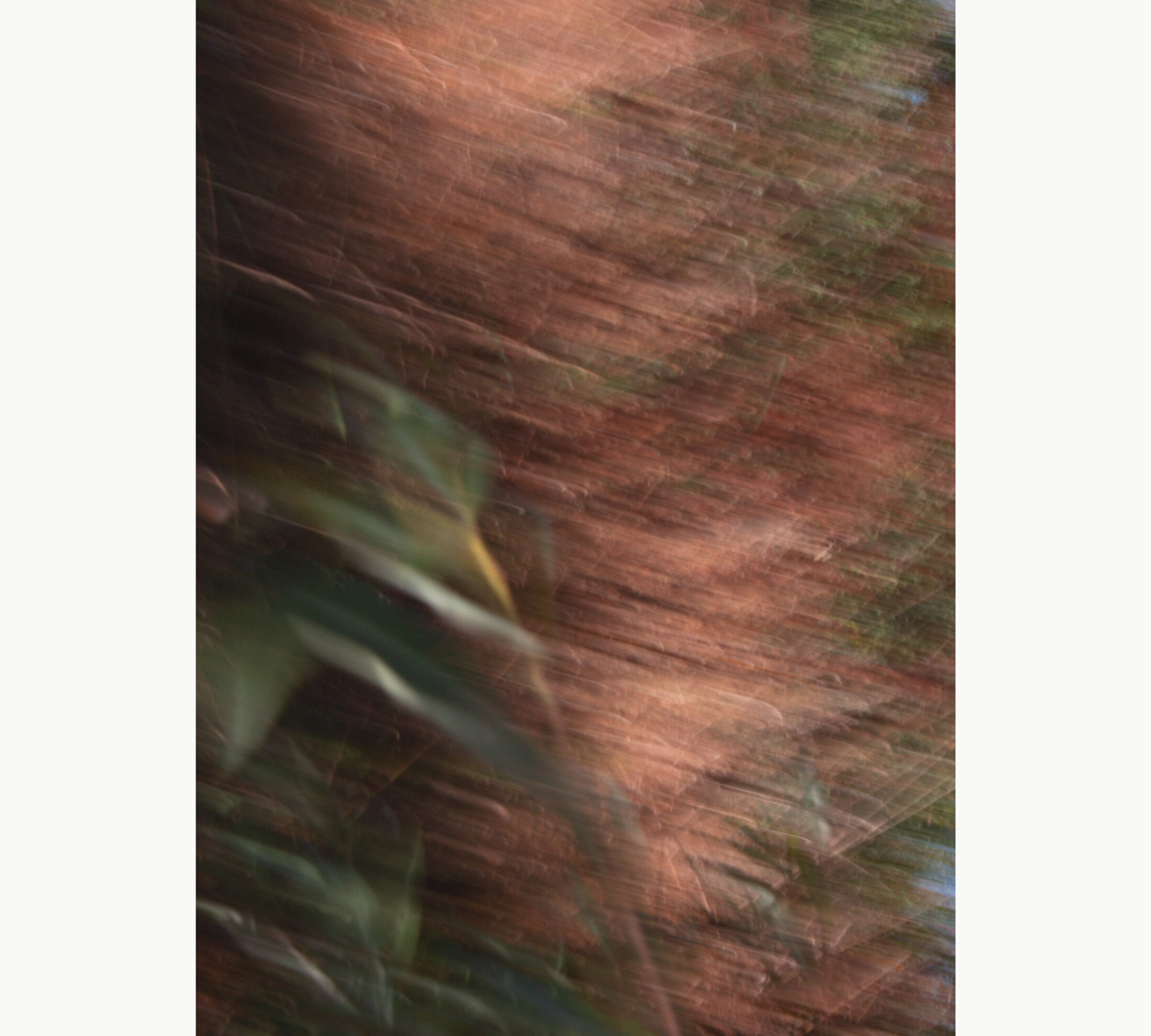
What I found outside the tunnels was a world renewed by our absence. I found a world that looked more like a vast, wild garden. There was a curious white film over the earth in places. The trees grew in wild profusion over the rough lands. Roads were no longer visible. Houses had been washed away. The landscape seemed to have been altered and rearranged in some extreme manner. I recognized nothing of the world I had been taught to know. There were birds in the air, but they bore no resemblance to any birds I had seen in books before. The woods rustled with strange small animals, but apart from that the world seemed uninhabited. I walked for a long time until I came to a place where tall structures could be seen in the distance. But when I got there, I saw that the structures were barren. They reached up to the sky, but they appeared to have no function. The doors that led into them were of steel and were bolted and rusted over, and this curious white film ran halfway up the structures.
Not far away were things that resembled houses. Some of the walls were still standing, but in many of the houses, trees were growing, their branches sticking out of the side windows. I saw chimneys sprouting vines. What had once been gardens were now outposts of forests. The roads were broken up. Everything seemed derelict, but it wasn’t a human dereliction. Ceiling after ceiling had collapsed. Chimneys were broken. A church was tilted sideways, as though its foundation had been made askew under the earth. Houses were sunk in wild tangles of vines.
I could still follow the roads and streets, and I could see that somehow civilization had kept up its skeletal structures beneath the disorder wrought by time and the unknown devastation. Over most of this—the churches, the walls, the houses—was this curious white film.
I had been wandering round the city for most of the day when it occurred to me that the air was good. I forgot that I was breathing. I failed to notice that I had been in the world a whole day and that nothing had happened to me. That was when it occurred to me for the first time that life could begin anew.
My first urge was to go back to the tunnel and tell those who were holed up there. Then I remembered all their attempts at bringing back an old domination, bringing back the old hierarchies, and I thought against it. We don’t need the way it was ruining how it could be, I thought. The old ways must die with the old world. To begin anew, we must really begin anew. I decided to leave them in the tunnel and never go back. It crossed my mind that this was perhaps what happened to the others who had gone on before and not returned. But however far I traveled, I saw no evidence of any successful attempts to start life anew. I saw no signs of any previous survival. Still, I would keep alert.
I chose a house with a field next to it as the place to begin life anew. It was a sturdy house, completely empty, except for the furniture and some books and old sheaves of paper. It had a pantry devoid of food, a well-designed kitchen, a toolshed with all manner of tools, bedrooms upstairs, some without mattresses, and a well-stocked library. The windows were shut, and most of the doors inside were open. I liked the house because from its first-floor windows you could see all around. It was built on a slight rise. From the south-facing windows you could see the field running all the way to the copse and beyond it to the woods. Something about the landscape made me feel there was a stream in those woods.
The mood in the house was old and moldy and subdued. The doors were all still working, but there was mold in the downstairs rooms, and the basement door was jammed. There was no electricity. There was no water. There were taps, but I didn’t know how to work them. The garden had become a lush little patch of wildness at the back of the house. The smell of mice was everywhere.
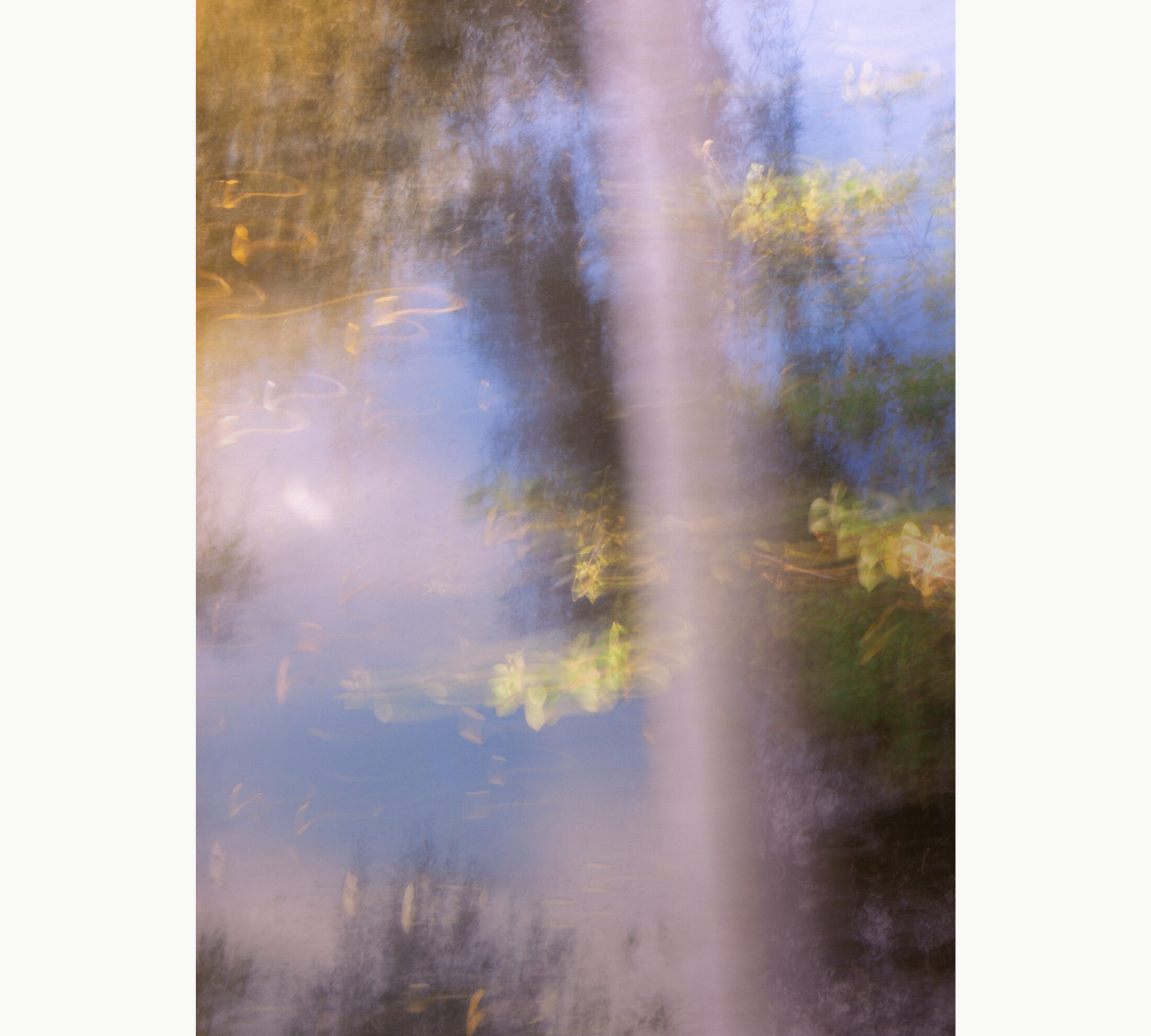
When I left the world of the tunnel, I brought nothing with me. What could I have brought? How do you prepare for a world you don’t even know is there? The house seemed to have everything I would need, but I simply didn’t know how most things worked. The world outside the tunnel had been nothing but a rumor to me all my life. I had listened to the older ones who remembered something of what it was like, and I had learned one thing from them: never to follow the route they had taken. They talked with affection about gardening, about driving, about large parties, about schools, universities, careers, money, success, music festivals, falling in love. I asked one of the oldest ones what she missed most about the world outside the tunnel, and she said:
“Being young in the spring.”
I had no idea what she meant, and she didn’t elaborate. But she went on to say something else:
“Our biggest mistake,” she said, “is that we were in too much of a hurry. We evolved more in a hundred years than we had in the one hundred thousand years before that. We ate up everything so fast, we even started devouring our own entrails. If we ever have the chance to do it over again, we should slow down. We should learn to enjoy one thing for a long time. But first we should get rid of the spirit of competition.”
“Why would you do that? I thought people said it was what made us so great.”
“But then it fed into our greed, and our greed finally devoured the planet.”
“But what would you put in its place?”
“Collaboration. It comes from laboring together.”
“But can we really do that? Are we not programmed to compete, to be greedy, to want to win?”
“We did that programming to ourselves and then made it essential to our culture. But we can be many things, not just one. When we build together, it is better than when we build alone.”
Those conversations, those fears, were the things I brought with me to the world beyond the tunnel.
The first day in the house, I could not sleep. The night was full of voices. They were the voices of the wild. Everywhere in the city, nature had returned and reclaimed its fertile terrain. At night the re-wilded world spoke and sang and called and whistled. The wind blew among the trees that had grown everywhere, grown in the middle of cathedrals and churches, sprouted on the roofs of houses, their roots stretching down from the ceiling to touch the earth. Deer and hares and wild boars that were thought to have long vanished from the island roamed free in the cities, which were now their terrain. At night I heard lions coughing far away, and sometimes the chattering of apes reminded me of the ceaseless arguments that got out of hand in the world of the tunnel, after which one of those involved would retreat and not be seen for weeks.
I had never known what it was like to sleep away from people, in a world wild and unknown. I had chosen a room upstairs to sleep in because there was something resembling a bed there. I slept on wooden boards and had nothing to cover me except the clothes I had brought. It was cold at night, and I shivered long into my dreams. In the depth of the night, I heard rustlings downstairs, but I did not get up to investigate. Those rooms were now the terrain of whatever had made this their home in place of humans. I had no intention of usurping their world.
In the morning I found animal droppings in the living room, but no animals were around. After looking everywhere to make sure I was safe, I set about making the house habitable. Windows that were broken, I boarded up. I cut a path to the stream. I weeded the garden. I lived off simple foods, off vegetables in the garden and all around the houses. I cleared up the road. Sometimes while I worked, I had the distinct sense that I was being watched. But it wasn’t by human beings. I knew the weight and the heat of human eyes watching me. Deer had left tracks everywhere, and I was tempted to hunt them for meat. But I refrained. I reasoned that they had reclaimed the city for themselves and were now living in mysterious balance with nature, and it wasn’t for me to come and ruin it. I found chickens running free and lived off their eggs, which I took judiciously. At night I lit a lamp and bolted all the doors, and upstairs in my room I would read in the absolute solitude of night.
There were moments when I felt I was in a dream. Then I would wake and find myself in what I thought was a nightmare, but it wasn’t so bad after all. I didn’t much miss other people. Maybe it was because their spirit, the society they had made, the end of time they had created, was all around me in the silence of a world without man or woman or child. The wonder is that not everything was erased. We thought that it had all been wiped clean off the face of the earth, and that the earth would get a chance to begin anew, from the start, as after a great and final apocalypse, or a vast universal fire burning human presence from every inch of the atmosphere. That’s what the tunnels were for: to survive the destruction of everything. But then we even brought our toxic past there with us. I just had to run out into the end of things, away from the destructive logic of humans. I didn’t miss other people. Their history, in ruins, was all around me.
And so I began again on my own, surrounded by wolves and wild beasts and large rodents and horses wandering the cities looking for food. I stayed in the house, and after many weeks I brought some order to it and made the garden nice and built a fence to keep out the wolves. Every night I lit a fire and roasted something or just stared into it and mused about an alternative history of the human race—if we are ever given the chance of a new Eden.
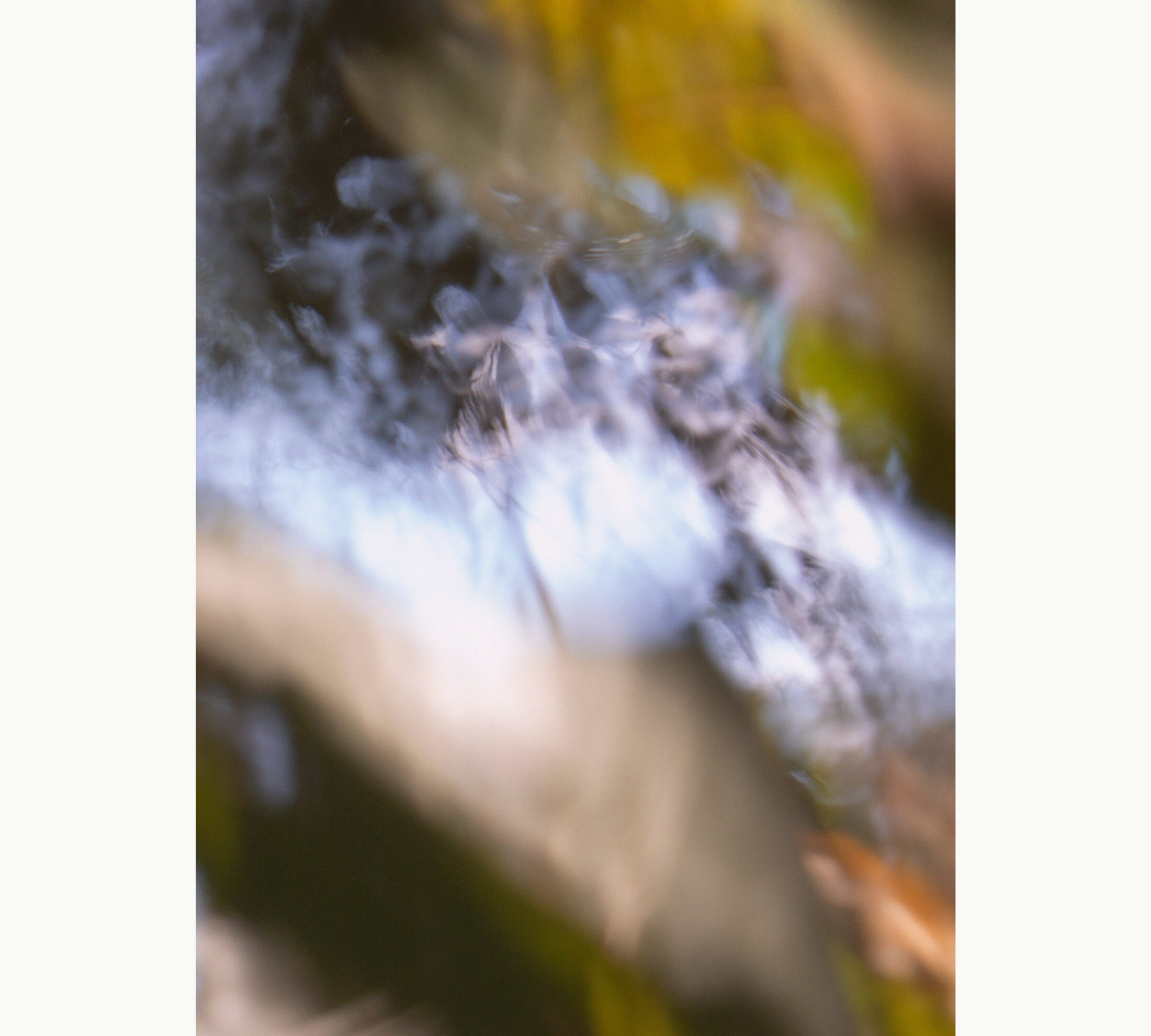
I lived like this for many weeks and months, and I think I was happy. I had no time to wonder about it. I worked hard all day and fell into sleep as you might dive into a warm sea in the height of summer. I slept better than I ever had in that momentous solitude. And then one day, after I had gone for a walk down the road to see what new vegetables I could bring back to my garden, I heard someone or something crying. I thought I had imagined it and stopped walking to listen. The sound continued, and it took a while to trace it. Then I saw its source, on the steps of a house that had crumbled to dust. Metal rods were sticking out of the foundation, but the steps were still there, keeping their structure.
And there she was, in a dress I had seen in a long-ago magazine, and blue trousers, and a kind of cloth wrapping her head. She was like a mirage or a hallucination, a dream sent by some strange deity to tempt me out of the oceanic solitude in which I had been luxuriating. I stared at her awhile, unable to move or think. I didn’t want to frighten her, so I kept still. Then suddenly she stood up.
“Who is there?” she asked. “I can feel human eyes on me. Who is it? Show yourself!”
Then I stepped out into what was left of the square. Now it was her turn to stare at me, her mouth half open.
“Who are you?” she asked. “And how do you come to be here? Are you a ghost, a devil, a mirage, a dream? Are you real? You can’t be real, you’re not speaking. I’m imagining you, aren’t I? I’ve gone crazy, haven’t I?”
She began weeping again.
“You haven’t gone crazy,” I said gently. “And I am real. Question is, are you real?”
She didn’t say anything for a moment. Then, giving a sudden cry, she got up and ran out of the square faster than I imagined possible. A moment later there was absolutely no sign that she had been there, that she was real and not just a figment of my tremendous solitude. I went in the direction she had gone and saw no one. I spent the rest of the day wandering around, trying to find her, but she was nowhere to be found and left no sign of her existence whatever. At last I went back to the house, but there was now a new uneasiness in my spirit.
I couldn’t stop thinking about her. She had appeared there out of the altered air, like a genie, or a vision. If she was real, this made it harder to fathom. Was she in this world by herself? Had she been by herself all along? Why did she run from me? Is she with others? Can there be more people out there? Why hadn’t I seen them? I had been everywhere in the empty city and seen no sign of new life at all, no sign of the unmistakable presence of humans.
All night I tossed and turned, unable to get the apparition out of my mind. I came to the conclusion that what I had seen was the image of what my mind wanted me to see, a compensation for the solitude in which I dwelt. I had read how Antarctic explorers in past centuries had seen amongst their number someone who wasn’t there. I had heard of cases of people having fugitive visions of vanished peoples. It was said that the places where these vanished peoples lived often conjured up the ghosts of those long gone. Maybe places bring back trace memories of people. Maybe squares dream of those who have played and laughed there. Maybe fountains sometimes relive the laughter of children who have jumped around in them. But then maybe I had gone so long now without seeing anyone that, for my sanity’s sake, my mind was inventing a girl for me. As I lay in bed, I could see her. I was talking to her when darkness invaded me, and before I knew it dawn was at the window, looking in.
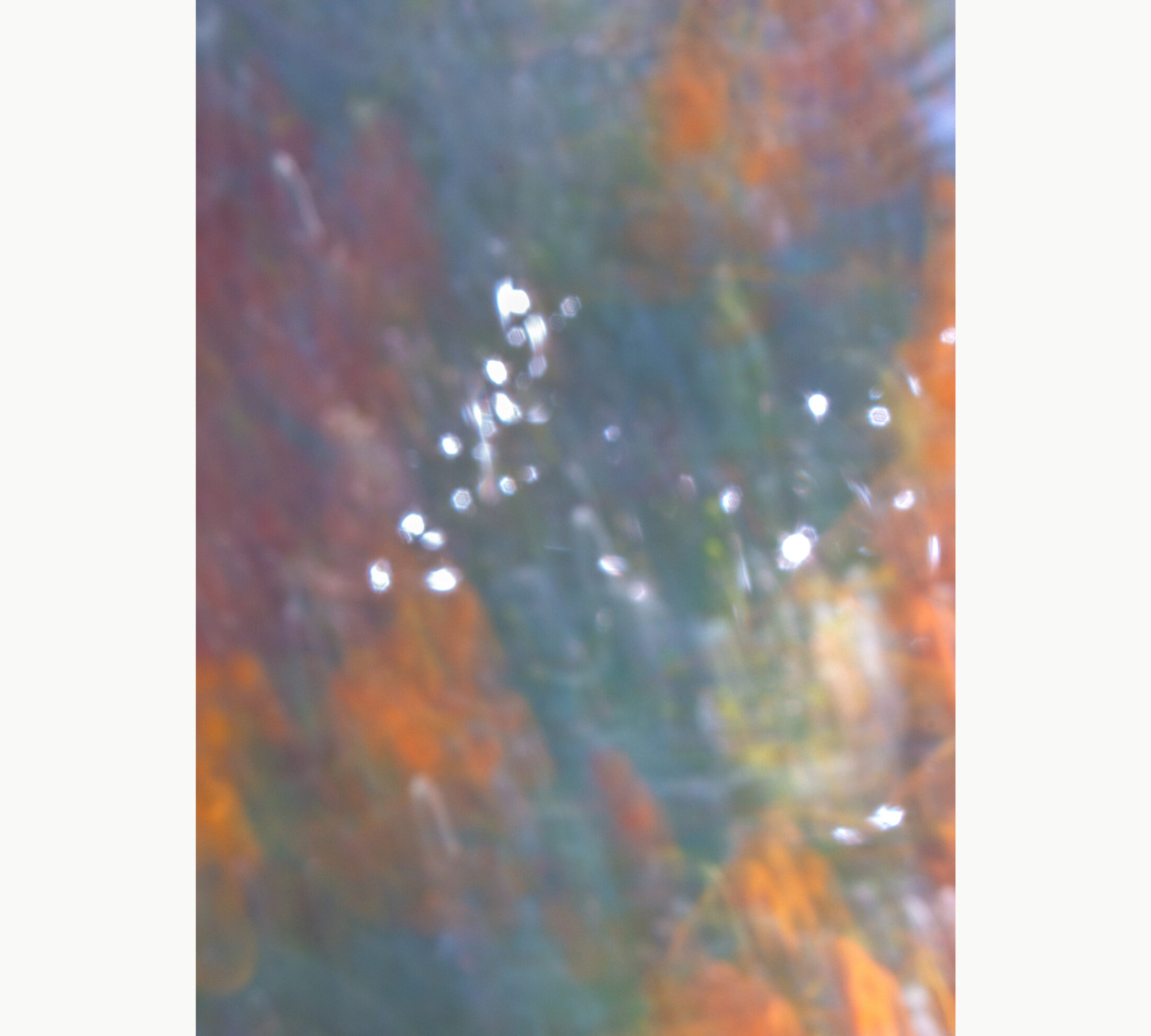
I did not see her the next time I went to the square. I wasn’t expecting to see her. But I kept my senses open. It was a lovely day in spring, and the utter dereliction of the city, the fallen masonry, the broken columns, the crumbling steps of public buildings, the strange white substance that had discolored everything, the flowers and plants that grew all along the pavements and on the roads, the trees that had grown through the concrete of houses and squares, the cracked tiles of official residences, the empty palaces where royalty had once commanded the adoration of the multitudes, the school buildings taken over by masses of birds, the police stations overrun by wild boars and growling mastiffs, the tall telecommunications tower that was now nothing but a symbol of the failed age of digital hopes—all were now refreshed by the emergence of spring.
The fine light of the sun made the ruination of the city strangely forlorn and charming. No one had ever seen it like this before. No one could have imagined that this would be its fate. There were no human voices in the squares, now teeming with weeds and bright, flaming flowers. Mushrooms of a particularly deadly hue mounted the walls of parliament. And the house of lords was buried, like a dark enchantment, beneath a forest of ivy so thick that it seemed almost impenetrable.
I wandered through the lonely city and did not see a soul. I heard no strange sounds except the sounds of birds and the animals wandering freely on the bridge. All the buildings, the roads and pavements, the rooftops and chimneys, and even the spires and the tall towers were covered with this white film. When I scraped it, the film would not come off. I sometimes had to chip it off. I could make no sense of the taste. It tasted like nothing I ever knew.
I walked far into the city with the hope of stumbling upon the girl again. Birds had taken up residence in several houses. Monkeys from the zoo chattered in the upper balcony of a church. Every now and again a horse would bolt through the streets, startling me. Nowhere did I see any sign of a living human being. Disappointed, I went back home. I kept up this search for another week, with the same results. By the end of the week, I became uncertain of what she looked like. Two weeks later I could not be really sure if I had seen her at all. By the end of a month, I gave up altogether.
But it made me think about what I would do if I did meet another human soul in this wilderness of a world.
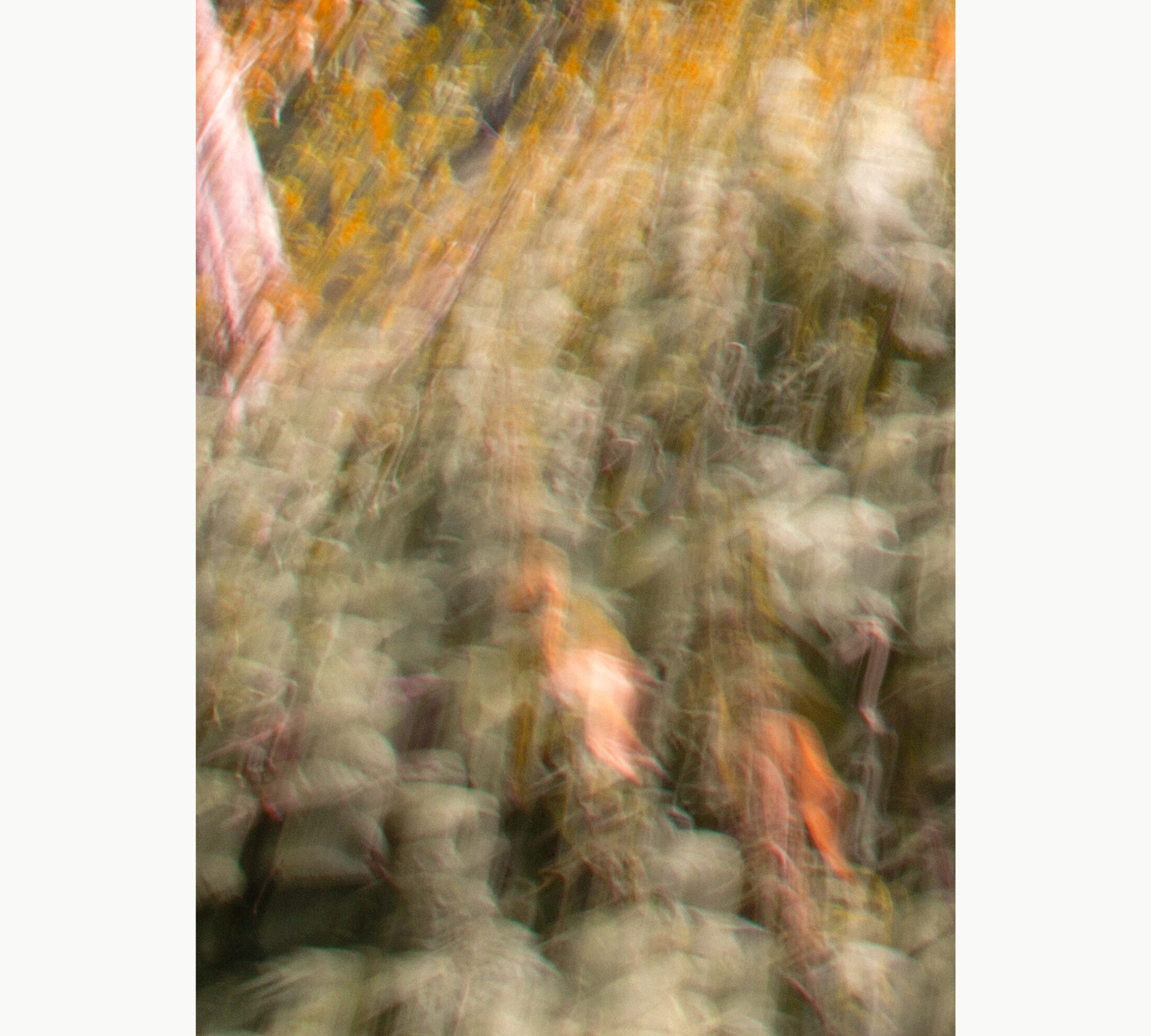
In the meantime, I continued working on my garden. I borrowed plants from the whole city. Flowers grew everywhere, indiscriminately. Marigolds grew beside giant rhubarb, poinsettias next to nettles, wild roses beside geraniums. I saw flowers I had never heard of before. The gentle ones I brought back with me. I made a garden out of nothing. It was how I made the time useful. In the evenings, after making food for myself, I would read. The city was one vast sprawling library, and I brought back books from my expeditions. I found books in empty houses, in broken libraries, in aristocratic estates. In many places books were moldering, their paper returning to mush. In one house the books had sprouted red-and-cardamom-colored mushrooms. One book I opened dissolved upon contact with the atmosphere. It was the strangest thing. It was entirely intact till I opened it, and then its words became dust and air. It made quite a troubling impression on me as I walked back to the house over the bridge and along the roads where houses had dissolved into piles of dust and rubble.
As I neared my house, I had an uncanny sense of something not being quite right. It nagged away at me. There was a field near the house with lime and ash trees. They were huge, their branches vast, their leaves lush for that time of year. I always stopped to look at them when I went past. But that day there was something unusual about them, something that bothered me about them that I could not identify. I looked at the trees, at the branches, and saw some wrens’ nests. I had just turned my head away and was about to go through the fence gate when I realized what was different. I looked again, and there she was, sitting with her back against the ash tree, asleep.
I stared at her in wonder for a full three minutes until I saw that she was now awake. She looked as though she had been awake all along. She didn’t move when she saw me. She just stared. I didn’t know what to do, so I stayed where I was, with the pile of books under my arms.
“So, you found me,” I said at last.
“I wasn’t looking,” she said.
“Then why are you here?”
“To lay down ground rules.”
“What for?”
“Us.”
“Why?”
“I know you’ve been trying to find me.”
“How many of you are there?”
“None of your business.” She paused, then said, “Only me.”
“If it’s just us, don’t you think we should work together?”
“We have to find a new way to do this or it’s not going to work. I will disappear and you will never see me again.”
“Okay. I don’t want that.”
“Good.”
“Do you want to come in?”
“That’s how it begins. So, no. Let’s talk here on neutral territory.”
I began to walk towards her.
“Stop. Not another step or you’ll never see me again.”
I stopped. She hadn’t really looked at me all this time. Her back was still calmly against the tree. There was something unnatural about her presence there. It was as if she were a nature spirit made visible, some kind of ghostly form that had emerged from the tree itself. Her colors were green and brown and her mood serene, almost indifferent. Her self-possession was uncanny.
“We are not going to do it the way it was done before.”
“Do what?”
“All of it. I’ve been reading about all of it. That was the only way to make sense of how all this came to be, this ruination of a world. We are not doing what was done before.”
“Then what are we doing?”
“I don’t know. But as far as I can see, this is a new beginning. Or an end. Maybe it’s too late to begin. But we can’t give up and do nothing. So we must find a way to begin even if it’s too late to begin. Because history is over. And we are the fag end of it.”
“I like that you say ‘we.’”
“I’m not including you in this ‘we.’”
“Oh.”
“That’s what I came to tell you. Keep to your space. Don’t encroach on mine. I don’t want any romance or any form of union that becomes a form of power relations. I don’t want to be your wife or anything like that. You manage your world as you see fit, and I will manage mine as I see fit. And don’t fall in love with me. Love in the end did nothing for the human race. They loved and still they brought the whole thing crashing down. They actually managed to bring about the end of everything just by the way they lived and loved. If we are to survive, we have to find something else.”
“What?”
“I don’t know. But while I’m trying to figure it out, I don’t want anything to complicate it. I want the complete freedom to think. I don’t want my time to be affected by you in any way.”
“My time is already affected by you, whether I see you or not. You are now a part of my breathing and my dreams.”
“Don’t do that.”
“What?”
“Imprison me with love. Your idea of love.”
“What have you got against love?”
“It begins as love and ends as power.”
“Why? It doesn’t have to. Not if it’s real love.”
“I haven’t come to debate such antiquated notions with you.”
“What have you really come for then?”
“To tell you to leave me alone.”
“But we are the only two people left. We may as well work together in some way. We won’t survive if we don’t work together.”
“What makes you think I want to survive?”
“You’re still here, aren’t you?”
“Still here. But not for want of trying.”
She stood up in a single fluid motion. I was not sure how she did it.
“Keep to your domain and I’ll keep to mine. Run your world the way you want, and I’ll run mine the way I want. Do you get it?”
“Yes,” I said.
Then she was gone. I didn’t see how she went. She seemed to dissolve into the trees, like mist. I stood there a long time, looking at the spot where I had last seen her. Perhaps I was hoping that she would return, or that she had never left. But she was gone, and I knew I would not see her for a long time.
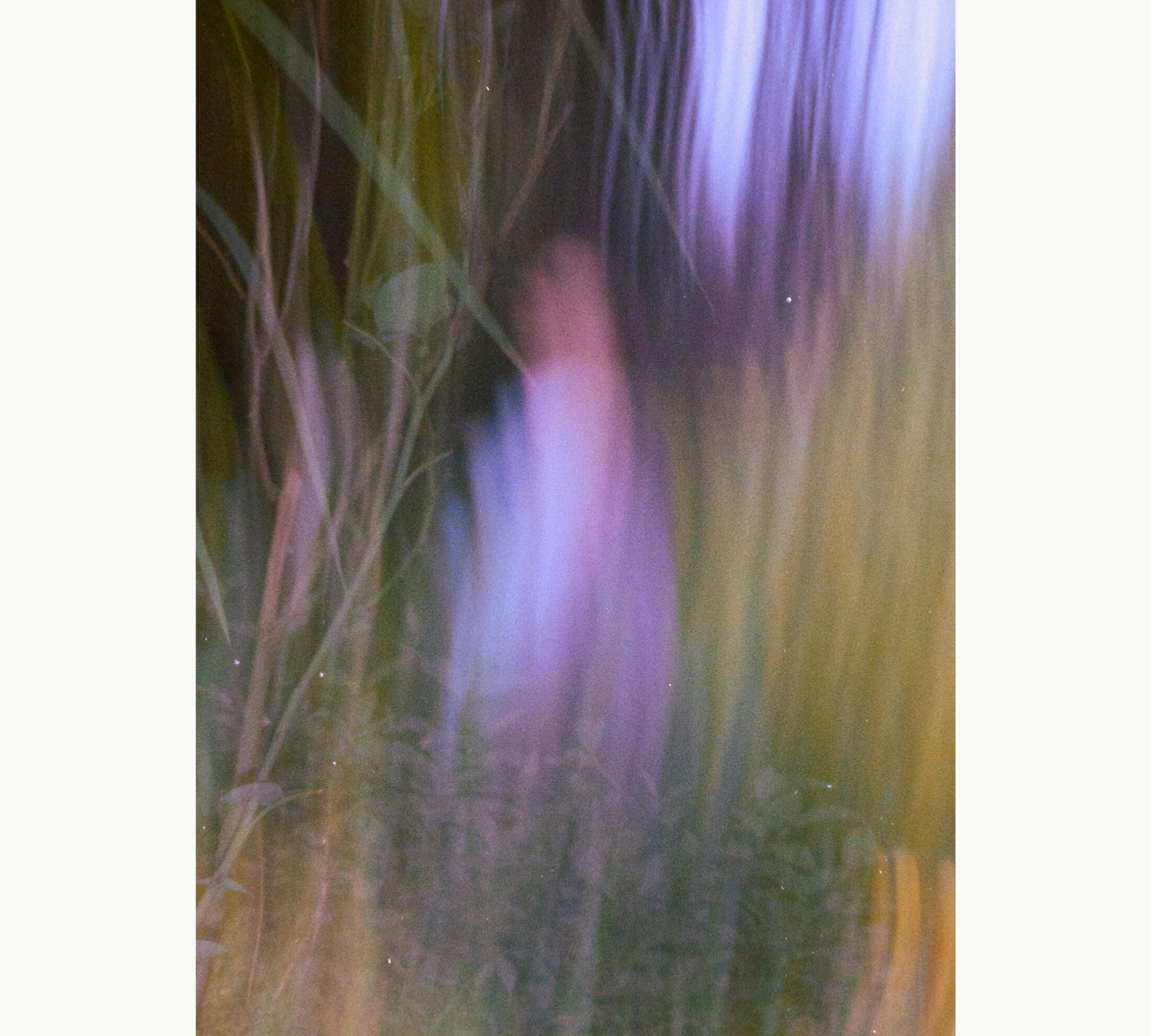
My loneliness was worse afterwards. For days I kept listening for her. I would look at the foot of the tree and imagine that she was there. But it was only a trick of the shadow or the force of my longing to see her again creating an image of her out of the movement of light on the leaves. I avoided the parts of town where I suspected she might be. My garden grew luxuriant. Soon I had gathered most of the flowers that could be found in the city. Foxes were everywhere, but they didn’t bother me. Wolves had drifted in from the countryside, and sometimes I heard animals fighting for their territories. I heard the snapping of jaws at night, and the howling and the snarling of beasts defending their brood.
After a lot of time passed and I didn’t see her again, I sometimes wondered if she was still alive. It was in those times that I felt the arrangement she insisted on was not practical. Whether she was alive or not mattered to me. To be alone again after having discovered that she was in the world seemed unbearable. So one morning I sought her out, if only to find out whether she was dead or not.
It took me most of the day, but I came to a street that looked different from all the others. Flowers lined the edges of the pavement. I followed the flowers till I came to the house. It was a modest Regency-style house, but there were wooden sculptures everywhere. There was a beautiful garden of the happiest-looking flowers. I went up to the door and knocked. I didn’t hear anything. Then I went in. The door, surprisingly, was open. I found her on the sofa, lying down, with a dull look in her eyes.
“I was hoping you would have the good sense to ignore what I said and come and find me. I am glad you came.”
“What is wrong?”
“I have a nasty cold.”
“You need someone to look after you.”
“And will you do that?”
“Yes, with pleasure.”
“Why?”
Knowing how touchy she was about love, I did not know what to say. She was watching me closely.
“See, you have no reason. You’re just…”
“Lonely?”
“Yes, that’s it.”
“I’m not lonely. I’ve got the birds and the trees.”
“What is it, then?”
“Why are you hostile towards having anything to do with me?”
“I’m not. It’s just that I don’t want history to repeat itself.”
“What history?”
“All of it.” She paused. “We have to make a new history, or we’ll just start the same cycle of creation and destruction that brought us to this point.”
For the first time I heard what she was saying. She was right. It is as if the logic of being human is tilted in a certain direction, as if we can’t escape what we are. We are doomed to compete, to exploit, to conquer, to control, to make hierarchies, to make power structures out of differences, to make power structures out of everything.
“But how are we going to be different from what we’ve been in the past,” I asked, “when human nature seems so flawed?”
“We have to have agreements. We have to reshape human nature,” she said.
“Can it be done?”
“We weren’t always what we became. We became it over time.”
“What’s the first thing you would propose?”
“Equality,” she said.
“But how can you propose equality without the power to enforce it?”
“Do I need power to enforce it?”
“Not with me, but with others.”
“Once power enters the picture, then we are lost,” she said.
“But power is always there.”
“That’s why I want my domain and you can have yours.”
“But you are sick now and need someone. Another time it could be me. We need one another. Do you want to be absolutely on your own?”
“Might not be so bad.” She paused. “No. I don’t.”
“What about if we banish power,” I said, suddenly inspired.
“How do we do that? The first oafish person from the tunnels to see the world all empty and fresh again will want to take it over and rule over it. Then we are going to need power to deal with him or her. So we will always need power to deal with the impulse of power when it arises.”
“So what are we to do, then?”
“We will make new laws. The first new laws of the race to come after us.”
“What will your first law be?”
“Every person is an inviolate and unique being. No one’s humanity is to be diminished in any way.”
“Is that a law or a saying?”
“It’s the best I can do with this nasty cold I’ve got. Look, thank you for coming round. But can we do this another day?”
I left straightaway, and she did not look up as I was leaving.
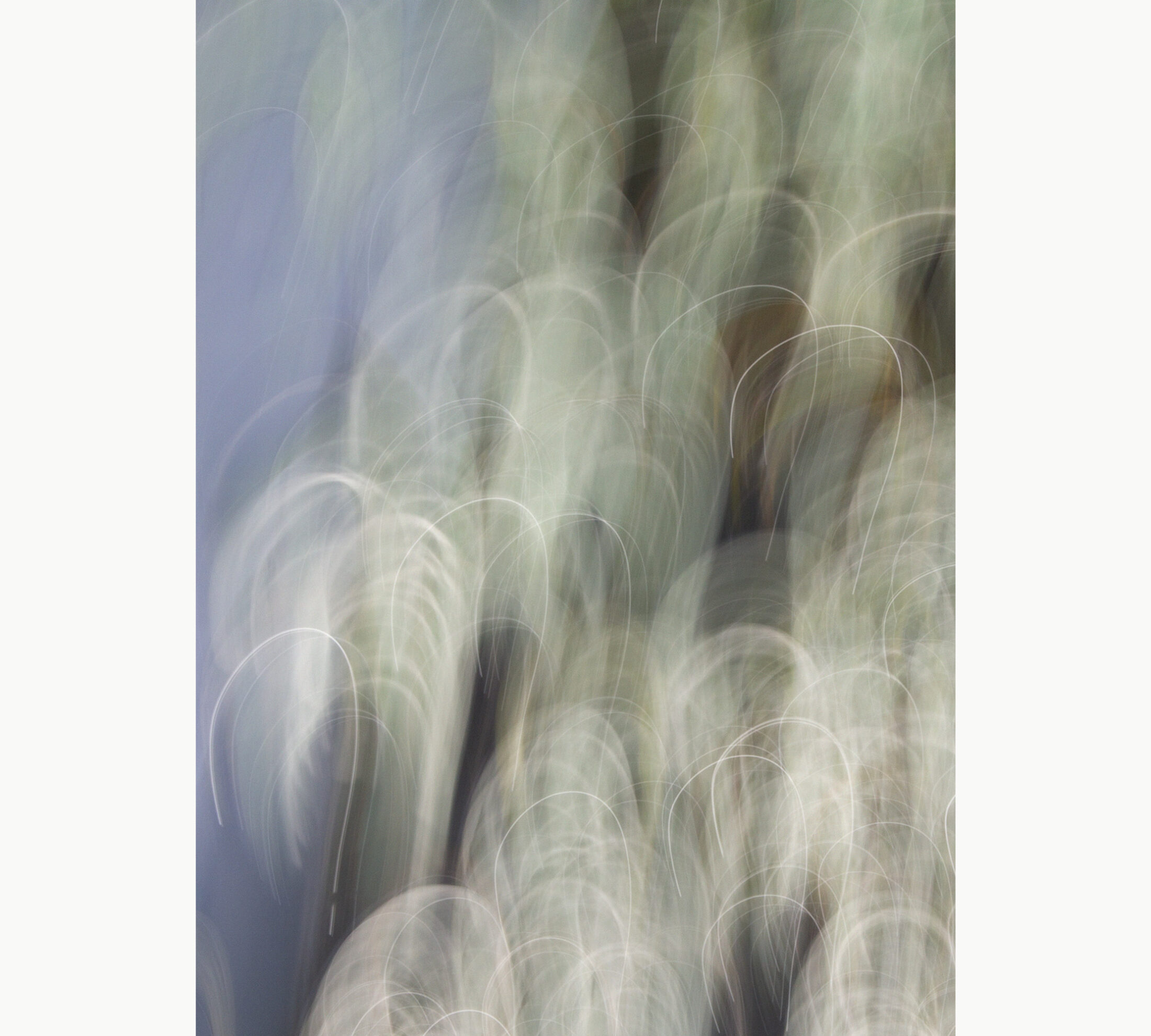
I stayed away for a week, then I brought flowers, hoping that she was better. She didn’t answer the door. As I was leaving, I heard her call me from an upper room.
“You didn’t have to kill a couple of flowers for me.”
“I didn’t kill them,” I said defensively. “I just cut them.”
“Imagine someone cutting your flower to give away as a gift.”
“Its flowers will grow back; mine won’t. That’s the difference.”
“That’s going to be one of my laws.”
“What?”
“There must be respect for all life.”
“Can we respect them and eat them?” I asked.
“Do you eat everything you respect?”
“No, but plants have no emotions. They don’t feel pain.”
“How do you know?”
“They would cry out if they did.”
“So crying is the only way of knowing whether a being feels pain? That is so human-centric. What if they felt and expressed pain another way? What if an alien species who expresses pain by turning green subjected us to various torments and we did not turn green? They would be justified in concluding that we felt no pain and forever afterwards could subject us to unmentionable tortures.”
“So, what are you saying?”
“We have to respect the rights of forests and trees and plants and flowers.”
“Won’t nature be wild, then, and unmanageable?”
“As opposed to exploited and dead?”
“Your world is becoming unlivable,” I said.
“And the world as you see it is already extinct. Don’t you see, those of us who have survived must take the human race in a new direction or we will make the same mistakes again.”
“But can the human race be taken in a new direction?”
“Right now we are the human race. Can we go in a new direction? Can you?”
I stood thinking about it for a long time.
“So will you have children?”
“I don’t want to.”
“Why not?”
“For all the reasons I have been giving. If we can’t take ourselves in a new direction, then there’s no point in having kids.”
“But we have to have kids or there will be nothing.”
“Is that such a bad thing?”
“What? I can’t believe you are saying that. Of course it’s a bad thing.”
“Why?”
“This is our planet. Humans should be here. It’s ours.”
“Is it? Is it really yours? How is it yours? All the other species were here long before you arrived on the scene. We are latecomers who just took over the party. Then we overextended our reach and made ourselves extinct. Here we are, living in the aftermath of humanity, and we are still hankering for the things that brought about her demise. Are we not mad? Or was humanity a preparatory species, doomed by its inherent limitations to be nothing but a forerunner to a wiser species that will transcend our fatal errors and make this earth the paradise it was always promised to be?”
“You think we were just a bridge to something else, something higher?”
“Yes. The more I think of our history, the more I conclude that we were just a rehearsal for the real act that will come after us. We were a warm-up act. We were flawed forerunners. Like the Atlanteans were before we came along.”
“And where will they come from, the real act to which we are forerunners?”
“They will come from elsewhere. Like us, they will have lost their planet, having taken all their beauty and blessings for granted. They will have been searching the galaxies for millennia, looking for a place of beauty that can sustain their life forms. It is they to whom the paradise of the earth is promised, because we have been disastrous caretakers of the miracle that is the earth.”
“But what about us?”
“What us?”
“You and me?”
“We can’t start a new earth.”
“Why not?”
“I don’t want to. I don’t think we deserve a second chance. I don’t trust the impulse of human history that is in me.”
“But you are different. If we work together, we could start an entirely new history.”
“I don’t want to think about it. I want to sleep now.”
She shut her eyes. I left. A week later she came to see me. She found me in the garden. She had been watching me for a while before I noticed her.
“I’ve been watching you,” she said. “You work as if you are expecting a mate.”
“What do you mean?”
“Why are you taking such trouble with your garden? You wouldn’t take such trouble if you were all alone in the world. There would be no point.”
I was silent. I realized that nothing I said would ever persuade her. I had come to accept that she wanted nothing to do with me. I represented for her everything that had gone before. She represented for me all that was to come. I kept silent and brought her drinks and avoided looking into her face.
“I had a dream last night that you died and that I was all alone here. All the plants and trees and birds and sky started talking to me, and their speech was so big and strange that it frightened me, and I woke up with a jump. A world without you is worse than I imagined,” she said.
I said nothing. I went back to work. I was clearing the leaves, smoothing the hedges, and generally keeping the garden clean and fine looking. Why was I doing it? No one was going to see it. Least of all her. I had given up on her.
“I think you’re right. We have to do something or one day one of us will be horribly alone in an empty world. Just makes me tremble to think of it.”
I began to water the lilies and begonias.
“Are you giving me the silent treatment?”
“You criticize the human past, and yet you behave selfishly and irrationally yourself,” I said. “You want to do what suits you. Then you want to change your mind when it suits you too. It seems to me that we are ill matched; I accept that we are doomed, and that’s fine with me. I’d rather live in peace and be lonely than be subjected to your endless games. If we are wiped out, then so be it. At least let me have some peace.”
She stared at me a long time. Then she vanished into the bushes and was gone. I could hear her footsteps far away. Two weeks passed and I didn’t see her. I thought it best to forget her. I worked my garden. Then I wrecked it. Then I started again. I had fits of weeping that lasted two days. I screamed into the boles of lime trees. I found a gun in the house and wanted to kill the wolves that marauded the woods near me. I starved myself for three days and was quite willing to let the world die with me. On the fourth day, as I lay on the kitchen floor, with everything becoming more blurred around me, I saw this angelic form hovering over me, and I passed out in its light. Then it was darkness. And then my head ached. A harsh sunlight shone into the house, and it seemed as if I had missed a whole season. When I tried to move, I couldn’t. I could barely keep my eyes open. I became aware that someone had been feeding me. After what seemed like two days, I heard the song of the lark above the far roof. I heard something cracking in the earth. I found these ominous sounds oddly restful. A day later, emaciated, I sat up and looked around.
She was sitting across from me, watching me with intense eyes. When I moved, I could feel her move too, but subtly. I settled my eyes on her a long time and did not speak. I did not know what to say. She smiled.
“Is there any way we can start again?” she said.
“From what?”
“From where we went wrong. I went wrong. I was being an individualist. I was putting my concerns about power above everything else. Then I saw that if I am here in this world on my own, it becomes meaningless whether I have my own power or not. I don’t want to be queen of the world if it means being on my own in the world.”
“Is that what you really want? To be queen of the world?”
“Perhaps! Maybe underneath all my posturing that’s what I really want! Quite shocking, no?”
“Quite,” I said, wearily. “But you are queen of the world.”
“Because I am the only woman! Not very hard, is it?” she laughed. “How are you feeling?”
“Surprised that I am still here.”
“Please be here. It is truly frightening being here on my own. Last night a pack of wolves howled outside my window. I had the weird impression that they were camped there, waiting for me. I couldn’t sleep a wink. I heard sounds all over the house, and I was convinced they had got in and were coming to eat me alive. Do you think love originated in the primal loneliness of our ancestors?”
I grunted.
“It’s a long way from that loneliness to the wars and terminal egotism of our last civilization. It seems our people lost their way a very, very long time ago.”
I said nothing. I was happy to hear her voice and her thoughts.
“I never told you how I got here,” she said. “And I will never tell anyone else. Our people lived in the far north of the tunnels. Been living there now for over a hundred years. I think at some point we began to go mad. There’s no other way to describe what happened. Every now and again someone would try to take over the group. There was nothing to take over, we were living in holes; yet someone would try and take over, and give orders, and take the women for themselves, and the rest of us would have to fight them. People got killed. It is as if people, in the extreme isolation in which we were living, suddenly became power crazy. It was as if power was the only thing that could console them after the destruction of the world, as if the misery of our lives could only be compensated for by power over others.
“I swore then, when I was a child, that I would always be free, even if it killed me. It nearly killed me being unfree. One uncle seized the women and wanted them as his concubines. He claimed to be the strongest. Fights broke out and relations were killed by relations. People had power fights over everything: over the women, the food, prime sections of the tunnel, and above all, the light.
“We only had two hours of sunlight in the tunnels where we lived, and power determined who got to be in that sunlight. It poured in from a crack no larger than an egg, but that light became what most of us lived for. The most powerful had the first light. They stood under it and basked in it and washed their faces in the beam. Then it was their wives and children. And after them, the next most powerful ones took in the light. Often, fatal combats broke out about who should have the right to stand in the light. Many of us went for months, even years, without ever standing in the light. All we could do was watch the beam from afar, watch it on the crowns of those who were powerful enough to deprive us of it.
“A time came when my father was unable to take it anymore. He could no longer bear living in the darkness of the tunnel, able to see the beam of light but never to taste it or feel it on his face. One morning he dared to go to the crack in the tunnel before anyone else and to lift his face up to the first rays of light. The joy this gave him was extraordinary to behold. But his act so angered the powerful ones among us that they struck my father on the head with a jagged stone, and I saw the crown of blood on his head, which the beam of light illuminated. The blood ran down his face and collected in his eyes. The look on his face suggested that his martyrdom was worth feeling, after all these years in the dark, that heavenly light on his face. Even if it was just once. He died that night. Two days later, in a manner that had become prevalent in the tunnels, my mother willed her own death.
“After we buried her, many things happened too terrible to tell, which woke in me the resolve to escape and face the certain death of the outside world rather than live another day as an eternal prisoner of mindless power. It wasn’t a desire for light or for life that drove me out. It was only the desire to be free, to never again be tyrannized, to never let anyone condemn me to darkness while they keep all the light.
“As you can see, my history has not predisposed me to accommodate others. But I see now that drawing extreme conclusions from my experiences, no matter how bitter and terrible, is not much better than depriving others of light. We can learn the wrong lessons from what happened to us. I did, and I’m sorry. You are not a tyrant of the tunnel. Please let’s start again.”
“How?”
“Tell me how you came to be here.”
I told her the little I could in the manner that my poor strength allowed, in a low voice, with no inflection. She listened to me with vacant eyes, more silent than she had ever been.
“So the people from your tunnel are still there?”
“I don’t know.”
“Are you tempted to go and tell them that there is still a world out here?”
“No.”
“Why not?”
“Same reason as you. They will revert back to what they were before. Within fifty years they will replicate the same conditions that brought us here. I fear them more than I fear the plague. Leave them in their ignorance.”
“That’s what I think. I also think that we must look after one another. After all, we are all we’ve got.”
“Is that a new principle of yours?”
“I have many new principles.”
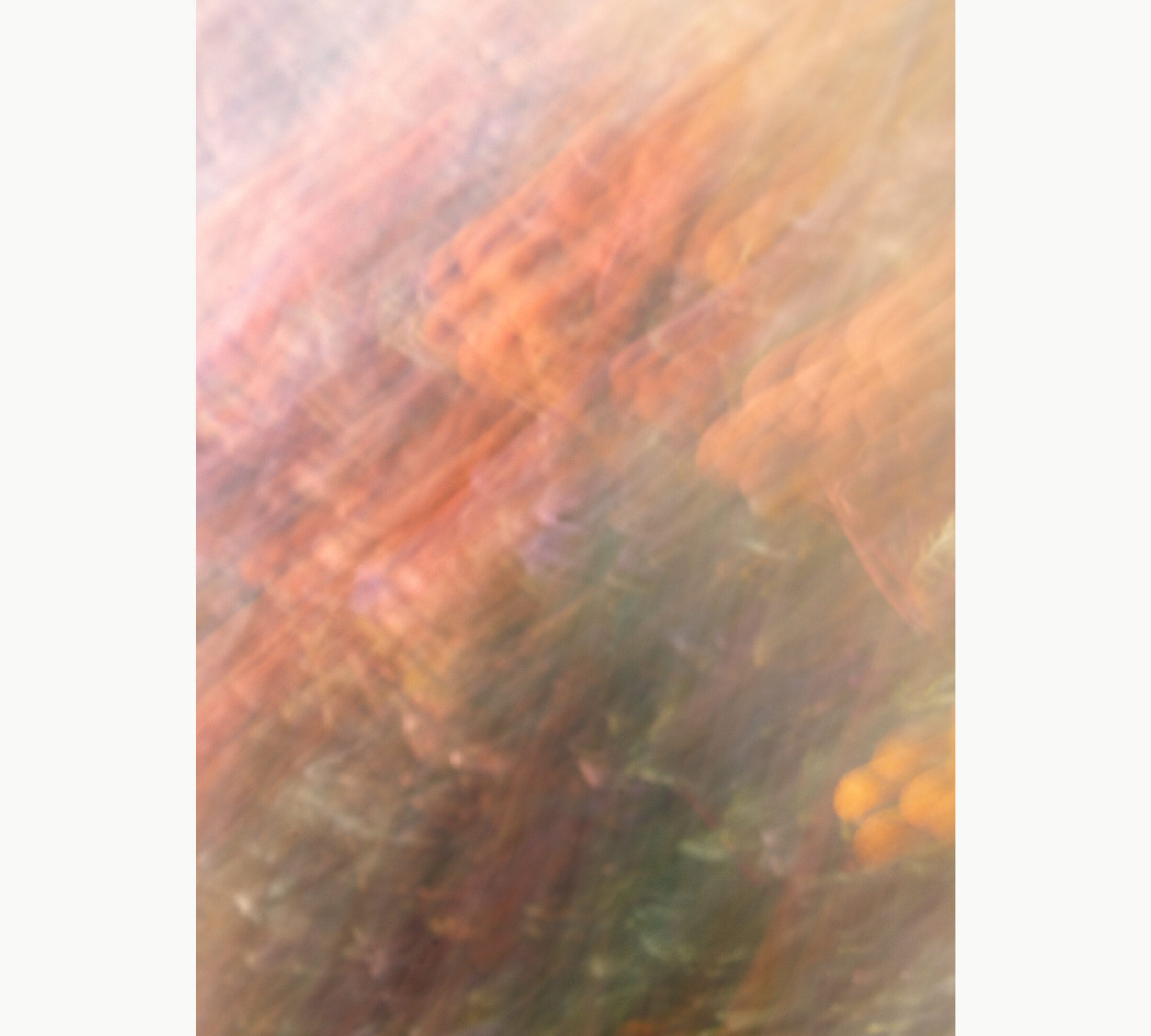
When I got better and could walk and take in the sun, I found that I did not recognize her anymore. She seemed an entirely different person. She was always smiling. She no longer spent all her time in her house. She seemed not so keen to be alone anymore.
Together we rebuilt my garden, which got a little ruined while I was ill. Foxes and other wild creatures had torn their way through it. There seemed something willful about the way the garden was shredded. We started having big fires in the nights to keep wild animals away. We found wood everywhere. The houses, though crumbling, had stores of all manner of things that survived whatever had befallen the world while we were in the tunnels. We found supplies of candles. We found an old electric generator. It took us a week to drag it back to the house. We found guns and bullets and a cannon and an old machine gun. We found cellars full of wine from many centuries ago. Some of the bottles of wine, more than a hundred years old, had preserved so wonderfully that when we uncorked them, their fragrance filled the living room and their fruity taste, redolent of long, tranquil summers, lingered on the palate and the mind for days. Some bottles held only ancient wine dust.
The cellars of the city yielded tools, boots, a fruit-pressing machine, cords, weighing machines, records, clothes, parts of cars—in short, all the equipment that was used to sustain a household. Every day we brought back something new.
We shared everything equally. We agreed that we must not allow one to have more than the other. We agreed that we were mutually dependent. It was in the interest of the one that the other was healthy and alive. Labor, too, must be shared. No one was allowed to sit down while the other one worked. No one was a servant. No one’s status was higher than the other. The land was held in common. Love was voluntary. No one was obliged to love back. Day after day we added to these principles, which extreme gravity compelled us to discover. Everyone deserves respect. Everyone has the right to be heard, even if they have nothing to say. Everyone has to make their contribution to the running of things. We agreed quite quickly that money would not be a part of the world we were making from scratch.
“But how do we measure value, then?” I asked.
“We measure value by how things enrich our lives,” she said with that clarity of hers which was at once considered and light.
She took to writing the principles down on a board.
“But what if we don’t know how to measure the value of something? We might think something valueless, when its value is in its absence.”
“Example?”
That was her way. Whenever I said anything that was abstract, she asked for an example, to concretize my thinking.
“Peace,” I said.
“That’s because you think peace is passive. But I think peace is dynamic.”
“Really? You’re bringing a special meaning to the word.”
“I think peace is the result of active qualities like forethought, hard work, vigilance. Peace is not for me the absence of discord, but the fruit of cultivation.”
“What about beauty? What does beauty actually do?”
“Beauty is not passive. Beauty inspires. It makes us think. It gives us ideals. It makes us want to be better, in some way.”
“Strange you should say that. Beauty makes me surrender. It brings me to the edge of the impossible. It often fills me with despair.”
“What are you talking about?”
“I’m not sure.”
Then she gave me an untranslatable look and stomped off out of the house and was gone for a day or so. When she was gone like that, I would just sit in the garden or in the room and stare out of the window, my thoughts empty, the vast emptiness of the city crowding down on me. In times like that, a crack from the abyss would enter my mind. I would become aware of the whole world and its vacancy, and a terror would come over me that would paralyze me for days. And it was only the sound of wolves outside—jostling in the streets below, or warring with the other beasts that now marauded the countryside and the towns—that roused me from my existential torpor.
On one such day, as I waited for something to wake me up from the funk in which I was wallowing, I heard the sound of weeping coming from the trees over on the south side of the house. I sought out the place and found no one. But the weeping sound continued. Then I concluded that perhaps it was a fugitive feature of the place. I think I was right in this, because a day later the sound of weeping came from somewhere else; and it went on moving each day, till one day it was far across the city, and then it moved on, out into the world.
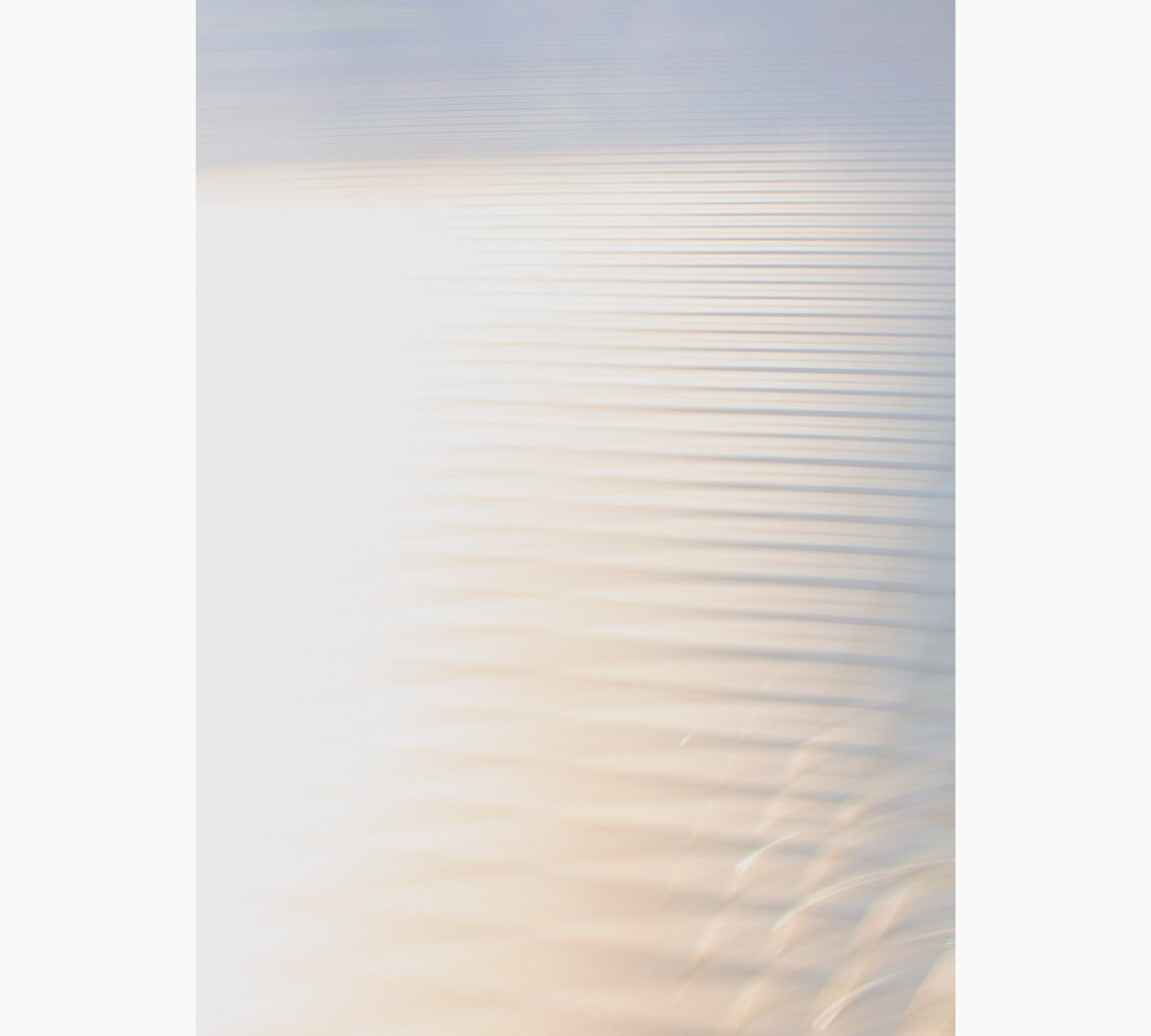
She returned one afternoon looking very thin. It was as if the emptiness of the world were erasing her from the world. She told me she had seen a green cloud drifting towards us. I was about to ask her about it when she said:
“In the new world we are making, everyone ought to have the same quality of education.”
“What about those who don’t want to be educated?”
“We have to change what education means. It shouldn’t be something you are compelled to do, like going to school every day. It should be conveyed as a tool for life. That’s what it should be.”
“Tools for living?”
“Yes. A book I read in the tunnels said that in the past most people were not educated at all. Many were educated to fail. Only a few were educated to succeed. That’s all wrong. Everyone should be educated to live. Education ought to be a basic human right, like eating, or sleeping.”
“And you want everyone to have the same standard of education?”
“Yes. Everyone should know how to start a fire, build a house, survive on an island, craft a boat, give birth, sew up a wound, read directions by the stars … In short, everyone ought to be a mini-civilization. So that when the world perishes, and one person is left—”
“In our case, two.”
“Then they should, together, be able to start civilization all over again, but better.”
I was puzzled about why she was talking like this. She had a strange new passion in her spirit. Her eyes were ablaze when she spoke.
“We should teach children to read the world, to know about animals and plants and trees, to know what is poisonous, and how to neutralize poisons. We should teach them how to know people, to read their characters. They should read nature. Sooner or later they will create science again, but it should be an enlightened science: not one that wants to shut down and abolish the mysteries, but one that wants to reveal them, and thus amplify them; not a science that is an enemy to the spirit of human beings, but an ally; not one that is afraid of not having the answers, but one that relishes the questions and the unknown.”
“I would like a science that explores the mystery of what we are,” I said. “Did you know that once, for a brief period, science actually proved the reality of telepathy? But other scientists were apparently so threatened by this unknown thing that they ridiculed the findings. I was surprised to hear that science was every bit as close-minded as the church.
“The church took three hundred and fifty years to acknowledge that Galileo was right. But science never allowed itself to acknowledge that telepathy might be right, and that things have an aura, that thoughts travel through space, that objects hold memories. Science has its own flat-earth adherents when it comes to the mysteries.”
I had been talking for a while when I realized that she was silent. I looked at her. There was a puzzled expression on her face. I felt that I was boring her, or that I was wearying her, so I got up and left the room. I went out to the garden and sat in a chair and watched the green cloud drifting ever closer.
After a moment she came out to the garden and sat next to me. She sat really close. Her proximity terrified me. Her intelligence was like a consuming fire. She was staring straight ahead, but something about her was burning me. I got up and walked away from her towards the laurel bush. She gave me a look that was like a flash of anger. I looked away from her, up to the sky, at the green cloud approaching; it covered about a quarter of the faraway sky. I was staring at it when I heard her coming towards me. I wanted to run. Her energy was overwhelming, even from yards away. There was a fence nearby, and I began, irrationally, to climb it. I got over, stumbled through the ragged rose bushes, and made it to the wildly overgrown street beyond. The mood she was in seemed like a madness. I don’t know why it frightened me so suddenly. I’d felt the same sort of fear in the emptiness of the city, with no human life around, just the insurgent trees splitting the squares and the climbing vines suffocating the buildings and obscuring the churches till nothing could be seen but this century-old takeover of the city, its palaces and government offices, its fountains and cinemas. That’s the terror I felt near her.
I walked along for a while and made my way back through the tangle of bushes that was the street, and I found her sitting where I had last seen her, with a dreamy expression in her eye.
“Why are you afraid of me?” she asked in a hurt voice.
I looked at her. Did she really mean that question?
“You have a sharp intelligence. But it’s like an old chainsaw—you don’t know what you cut, or what you decapitate.”
“Am I that bad?”
“Not bad at all. It’s just that your equipment is more powerful than your consciousness.”
She looked crestfallen.
“Nobody wants me,” she said.
“Nobody wants to be lectured at all the time,” I said, and felt ashamed of it.
“I promise I won’t lecture you again,” she said.
I went over to her, not wanting to seem intimidated. Her eyes widened as I approached. Then she caught my arm and, with a lazy swaying gesture, said:
“You’re strong. When did you become so strong?”
“Am I strong? I’m not so sure. Sometimes I—”
“I always admired your strength.”
“Really?” I found myself backing away. There was something panther-like about her swinging, swaying mood. Was she toying with me?
“How you can be here by yourself, alone in all the world. That’s strength.”
“Or disgust with the others.”
“A sense of disgust is strength too.”
I looked into her eyes. For a moment I could not see the person I had seen before. A new person stood before me, but I could not trust my eyes.
“Let’s start everything again. Let’s begin again at the beginning. I was a little mad before. But I’m better now. It’s like something has swept the sickness out of my head. I feel new. I am ready for a new—”
She lowered her head. Then she began, silently, to weep. I felt heartless and miserable watching her. My fear of her moods stopped me from going towards her for a moment. Then I realized that nothing in the world was ever going to happen again if I didn’t get past my fear, my doubt, or the love that I had buried deep in my pride, buried and smothered. Nothing was ever going to happen again. The flowers wouldn’t be the same, and the green cloud would conquer the sky, and the tunnels would find a way to open up right in the midst of our immemorial solitude. All of the past, with its tragic arc, would live again if I did not find a way to cross the abyss that shone between us. She stopped weeping, stood up, and began walking away from the garden. She paused at the tall roses, red and fleshy and bright in the afternoon sun. She began moving again, past the roses, and I said:
“Wait!”
She turned eyes of pure clarity towards me and held me with a question. The look in her eyes restored me to a self I had never known, gave me to my new self. I was changing as I walked towards her, all my uncertainty gone, and I understood now the meaning of that green cloud slowly obliterating the sky. Nothing but the purest dream of a new beginning was left between us when she lifted her face to meet my kiss.
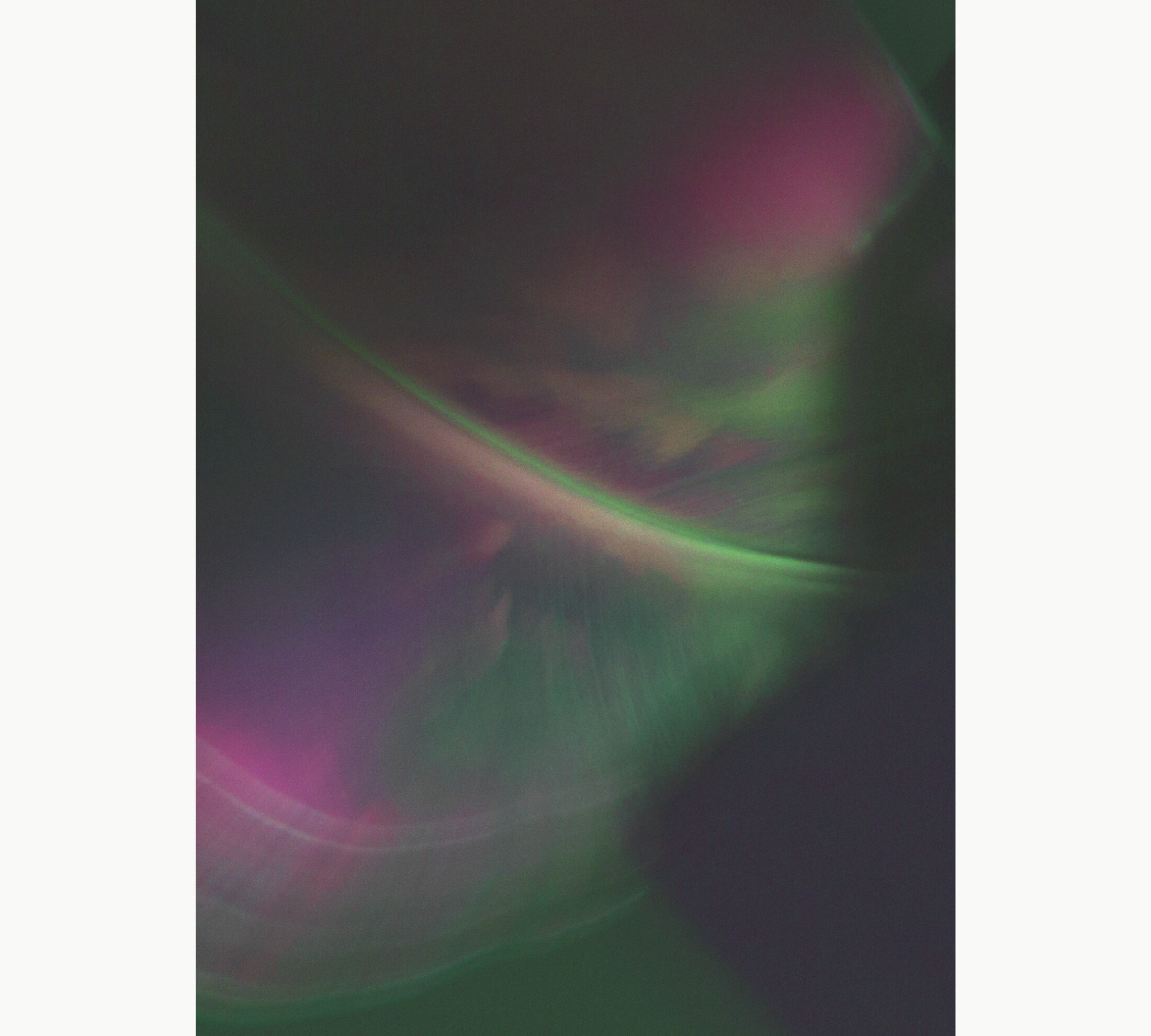
A week later we returned to the tunnels. We settled in places where they did not know us, where we were strangers. We said nothing about coming from the outside world and told a plausible story about the collapse of our section of the tunnel. That sort of thing happened often.
We kept our secret and awaited the time when we could emerge again, when the green cloud would be gone.
And during that time, as the child grew in her, we made plans. We clarified our ideas. We bided our time. We did not want our child born in the captivity of the tunnels. For her, for him, for us, it would be either freedom or nothing. We knew what kind of future we wanted. It would bear no resemblance to the past.
A year later we disappeared, and must have been presumed dead. That’s what we wanted them to think.
